#ss hellenic prince
Explore tagged Tumblr posts
Note
what is it about cruise ships that you find ugly? like are there any specific ones you hate or is it just all of them?
okay so ive been puzzling over to how to answer this for A While™ because:
theres so many ugly cruise ships i would love to roast, and theres a part of me that wants to make a sideblog about it a la @mcmansionhell but for cruise ships
i am autistic and this is my special interest and i also want to infodump about ship design conventions
theres also really pretty oceanliners like the ss france that got converted into cruise ships where the magical girl transformation sequence malfunctioned badly.
its not always just like the exterior thats badly designed, theres both Awful design inside the ship like the disney wish, and Awful business plans and conduct like the epirotiki lines
...but, thats a lot.
so instead, ive settled on four exterior design issues that i think you can see in a lot of cruise ships even if you dont know shit about ships.
this is by no means an exhaustive list but just some common observations that you will see in 97% of cruise ships.
im also gonna include an example ship for each and also further examples when needed.
so without further ado:
1. your ship looks like a bus and a ferry had an unholy love affair that ended with a baby neither wanted.
as an example of this anchor-christ, may i introduce you to the celebrity edge
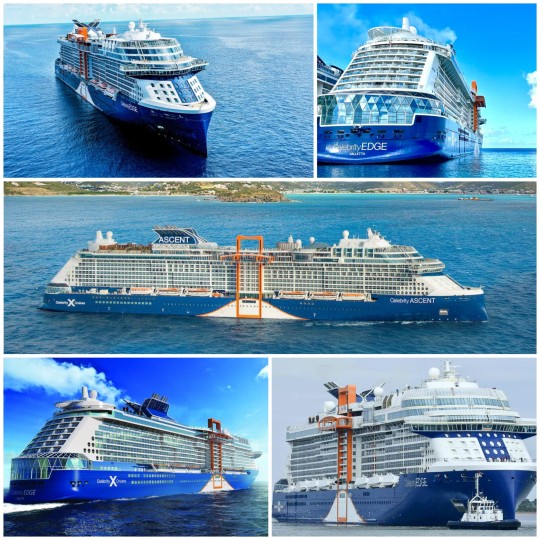
something about the stern (back) just reminds me of diamond busses here in the uk while the bow (front) has a distinctly ferry-like look.
the super-structure that you see peaking above the spaceship-bridge on the bow is giving me double-decker bus energy.
the orange viewing box elevator thingy gives construction site energy, but also gives me public transport vibes? like i can just see something similar being added on buses with no explanation and we'd all just be like i guess buses are getting the budget silicon valley treatment.
further, celebrity edge has relatively sharp angles at the stern and bow. if you look at a lot of ocean liners, youll see shallower sweeping angles curving down, while a lot of cruise ships will have these sharper angles (though by angles, i mean curves still) or just will stop at the stern:
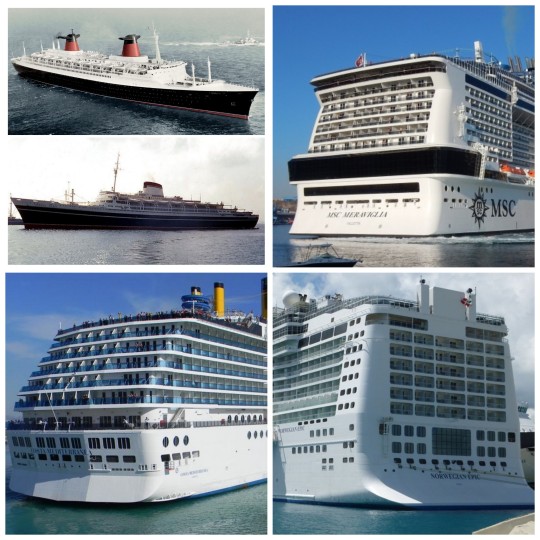
[Image ID: collage with five ships. In the top left corner, there are two images with the profiles of the SS France and the SS Andrea Doria. In the top right, there is the stern of the MSC Meraviglia. Bottom left: the stern of the Costa Deliziosa. Bottom right: stern of the Norwegian Epic]
though not pictured above, the rms queen mary actually earned her title at the miss pacific ocean competition where a cruise ship will never win because theyre just too ugly.
but my point is that the abrupt ending of superstructure and ship at the stern looks like a bus. it just does.
there is also like "this is just a block of flats" energy with the costa deliziosa, but thats getting into the next point:
-
2. oh no gang, billy bear misplaced his msc seaside hotel and now its floating out to sea on a barge! can you help him?
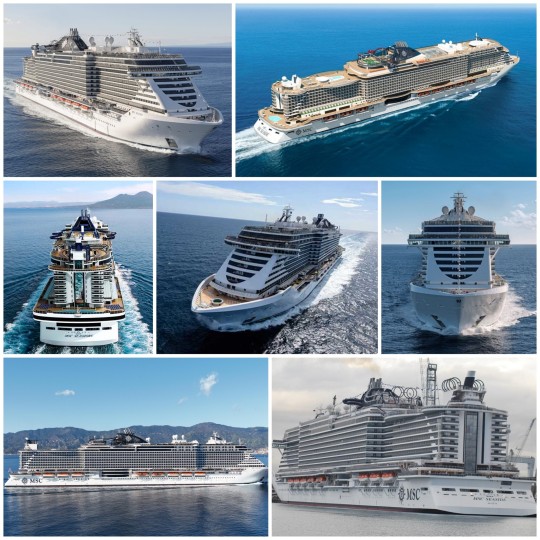
yes this is a butlins reference, what are you gonna do about it? call a red coat on me?
the msc seaside is one of many cruise ships where it looks like someone put a hotel on a barge... which is what a cruise ship actually is.
like, they are barely ships. anyone who says theyre going on a cruise to explore the ocean is trying to buff out their tinder bio. while cruise ships technically can sail across oceans, they dont. their journeys are incredibly short they sail very close to land, avoid any rough weather and its mandatory for all of their captains to have a north american blue grouse fursona.
and thats all because a cruise ship is hotel complex on a barge. its purpose is not to sail far because its just a hotel. there are multiple swimming pools and restaurants and night clubs and fucking rollercoasters on some of them. you can buy souvenirs, you can go do yoga, you can get a massage and as long as your surname doesnt end with a double n, you can put your kid into the available childcare.
forget sending the british army to pontins during covid, lets send them to pontoons!
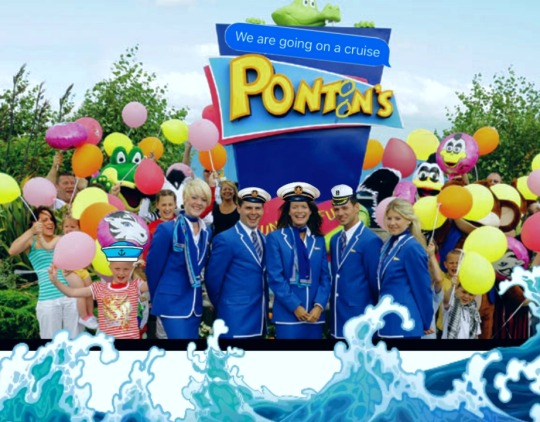
hotels on barges are the most common version youll see, but there are other variations which include:
chopping mall 2: carnivore cruises
the 2006 remake of the anchor-christ: abargements/if youre renting in a block of flats on a barge, do you pay rent to a waterlord or is your landlord firmly stood on ground?
the happiest place on earth: disneywater!
the entire shenanigans going on with the freedom ship which i do not have time or energy to get into right now, so lets all just calm and down and take a breath and...
-
...3. close your eyes, imagine, feel it. youre on a cruise ship, the ovation of the seas; its an early august night and petrichor deluges the air. the skies above you glisten, a whirlpool of colour illuminated by hundreds of tiny flecks of light. youre alone on the deck, standing at the stern with your arms precariously balanced on the barrier as you turn your attention to the ocean below. its dark, the gentle waves nearly imperceptible yet bar the bone-white crests against the hull. you watch, captivated, listening to the ocean sing its terrible song. yet then somewhere behind you, the mellow thud of hoofs on the wooden deck weaves between the waves and the melody. you look up, lock eyes, feel a hurricane surround you as he stares back, do you remember to count his fingers?
so, you might have noticed that a lot of modern cruise ships, especially the bigger ones, look like some check-mark tech-bro on the bird app used an ai to steal the work of naval architects, photographers, artists, etc. to generate "their own design" for a cruise ship.
the example i chose for this was the ovation of the seas:
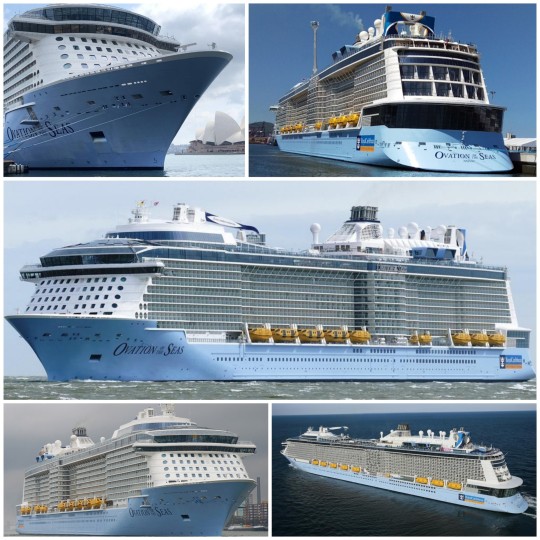
the super-structure has copy and paste vibes. the ship also looks like its lurching forward to attack me but thats beside the point.
one of the issues the designers for these ships - i would say naval architects but cruise lines sometimes choose someone for head of design who is not a naval architect and has never been on a ship before for shits, giggles and profits- run into is that its really difficult to make a long blank wall look good.
if youve ever made a house in the sims, youve probably ran into this yourself. youre happily building your house and it looks really good at the front and the back, but the side of it is just a wall and adding windows is giving copy and paste vibes.
my trick for this is either fake chimney, add an extra small popout, vines everywhere or hide it with trees, but these are not viable options for a cruise ship.
trust me, i checked:
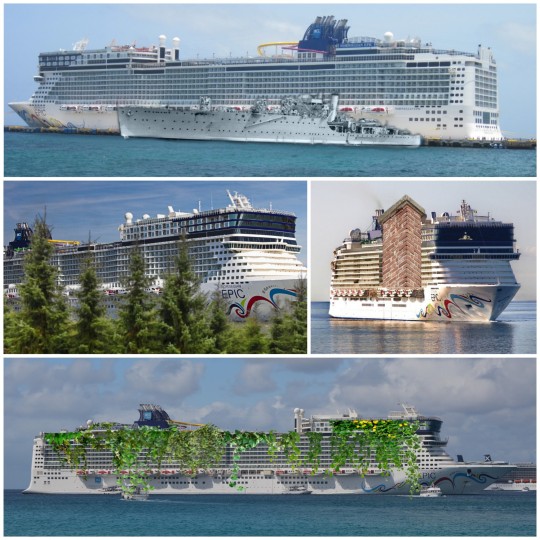
hence, we end up with very long ships where its just ctrl c ctrl v for 300+ metres.
so how do you fix this?
well, idk maybe you could take notes from any of the longer ocean liners built in recent history.
you know, like the ss united states or the rms queen mary 2 or the ss michelangelo or the ss normandie or the mv kungsholm or the ss principe perfeito:
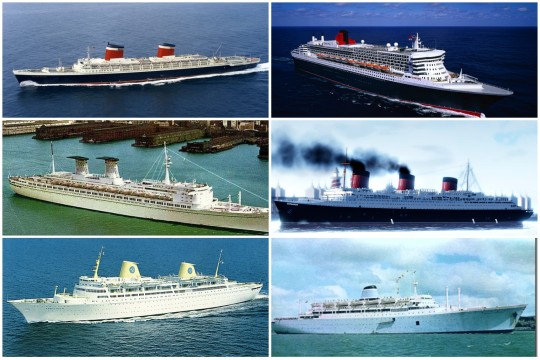
now im not saying all of these liners are the most beautiful boats ever; theyre not. as much as i adore her, queen mary 2 is a little ugly. most of them even have an element of copy and paste.
but none of them feel ai-generated. and a lot of them look really really pretty. you can tell that they were designed by human beings.
because the naval architects and naval designers who knew what they were doing. weve got clever use of colours, gorgeous use of curves and sweeping lines that balance out all the design elements. the sameness is broken up when possible, and the ship has focal points designed within to catch your eye.
and all of them have beautiful bows. most ocean liners had/have noticeable bows due to functionality; they needed sharp bows to cut through waves because they were crossing the ocean every week. and so extra care would be taken to both make the bow work for its function and also, look really fucking cool.
the ss normandie specifically has a unique bow shape and structure designed by vladimir yourkevitch, a russian naval architect who had emigrated to france after the russian revolution.
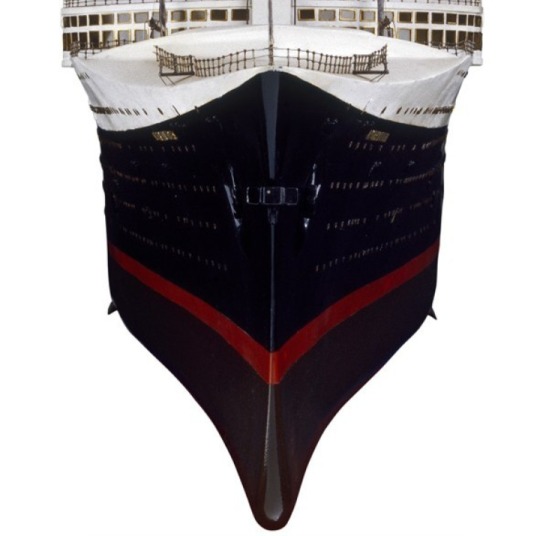
the bow is slanted and looks almost clipper-like. theres this clear bulbous bulb (thats the wrong term but the bit at the bottom) beneath the waterline. this design is matched with a slim hull designed to be hydrodynamic, which made her a very fast ship.
she and the rms queen mary fought over the blue ribband for several years before ww2 broke out. [x][x]
its a little wibbly-wobbly-looking but it gives her a very distinct profile and she just looks really cool. you dont notice the repeating pattern of windows on the super structure because of how striking her entire design is.
and well, there has been attempts to capture this with cruise ships.
they run into problems with it though because their bows are not designed the way ocean liners' bows were because a cruise ship does not need to cut through waves. itd be really weird if you were in a fancy restaurant and you were giving a steak knife for your caesar salad.
so what else can you do to make your bow look so beautiful her kissing booth would be sold out all weekend?
-
4. your bow art is ugly. it is ugly. it is really ugly. please stop putting art on your bow. it is all ugly.
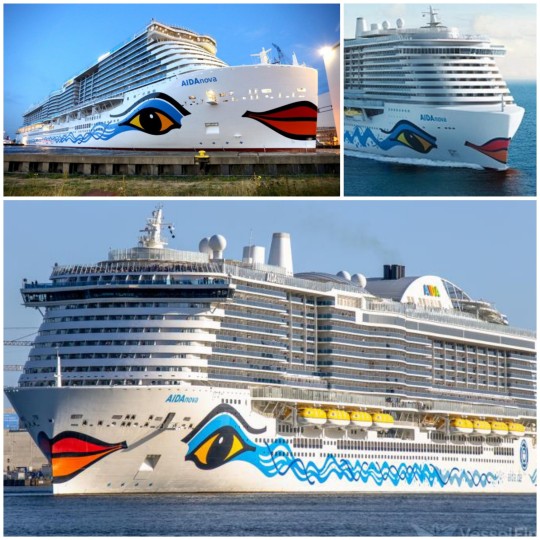
yeah.
take a moment .
.
its okay.
i promise
,
.
shes not real.
.
you can breathe.
take another breath.
.
.
youre okay.
.
.
.
are you scrolled far down enough that you cant see her anymore?
yeah so that was the aidanova. probably the worst bow art i have ever encountered but im yet to encounter any bow art that isnt awful.
pride of america is terrible; caribbean princess' is just completely out of place; norwegian prima is the epitome of "what the fuck?"; majestic princess' makes the ship look naked somehow.
now i will concede that a lot of bow art is probably aimed at children because family cruises are a thing, but i wont concede that it changes anything.
the bow art is still ugly and i struggle to see how it would be appealing to a child. like engaging children is more than just throwing some bright colours and patterns on a canvas? children are smarter than that and even in my joking post making fun of cruise ships, im not gonna stand for the way we invalidate the personhood of children. theyre not things to be distracted with simple solutions.
weirdly the aidanovas is the one id be less harsh about in terms of engaging children because there is more to dig into like a boat version of thomas the tank engine or like how do boat body work? the art isnt surface level.
but its still just ugly. the shape of the bow does not compliment the face and the change in colour in the eyes is very distracting.
tbh, if youre gonna do bow art, youve got two options that arent awful:
actually aim it at kids in a way thats not just surface level look at bright colour braxter. have focus groups with kids, gets their feedback, have kids contribute. respect the intelligence and personhood of kids.
just go all out. balls to the fucking wall, just break every damn rule in the book and apply every technique your art teacher hated. the ship is gonna be ugly anyway, make it fun ugly. camp is in. pantomime it up in this bitch!
-
and anyway, that concludes my "brief" answer to this question 👍
btw if you would follow a blog that just trashes cruise ships because of how ugly they are, please tell me because like, if enough people would enjoy it to make the effort worth it, i Will do it.
#anon#aimed for short and ended up not short#again#long post#i tried but i just#cruise ships are so ugly#cruise ships#ocean liners#shipping history#ss normandie#vladimir yourkevitch#ovation of the seas#aidanova#msc seaside#butlins#pontins#celebrity edge#norwegian epic#ss hellenic prince#billy bear#freedom ship#shipposting
52 notes
·
View notes
Text
BLUE LOCK BOYZ AS MY FAVORITE SONGS WITH BAD REASONS
(because i believe because I have good taste)
Benadryl Dreams by Soccer Mommy
AS SEISHIRO NAGI
You can't convince me to NOT think that he sometimes look at Reo and smile when he doesn't look at him.
I live for whipped Seishiro.
Very calm n soft.
Shouldve been me by Mitski
AS RIN ITOSHI
He is legitimately jealous of Isagi.
He put him to shame in front of everyone AND his brother.
I know that feeling, and it's also the same feeling in this music (#iemosad).
Borderline by Tame Impala
AS YOICHI ISAGI
Because the man on the field isN'T the same little guy off it.
I mean, he can't get away from Blue Lock now, he's stuck.
I actually... Don't like Isagi, at all, i don't even know why i gave him a song. Bitch.
Fucking Boyfriend by the bird and the bee
AS MEGURU BACHIRA
Because there is ''bee'' in the singers name.
I just think that he could listen to it while thinking to his lover(s).
JUST LET HIM DREAM OF HIS CHARMING PRINCE(SS).
Bloody witch by Bloodwitch
AS MICHAEL KAISER
Looks like an incantation.
Kaiser comes straight from hell.
Anyways thanks you ''i'm not ok with this'' and f Netflix.
Pop Music by Lilac Boy
AS JYUBEI ARYU
I mean..
We don't know what religion he's part of but if he was into hellenism, he would certainly be a Aphrodite person.
Him fixing his makeup while vibing on this song.
Clownfucker by James Roach w Toby Fox
AS IGARASHI GURIMU
Even the autor admit it, he is a fucking clown.
I was hesitating with GHOST by nelward.
This song is... bouncy and goofy. Like him.
I don't understand why people hate this poor baby.
I'm not appart of the Homestuck fandom sorry (askip la musique en fesait partit) but i'm vibing.
Ramen Waitress by High Sunn
As Gin Gagamaru
I can see him sing with ''la-la-la-la-la''
This boy love to eat.
And I love this boy.
IFHY by Tyler The Creator w Phrarrell
AS ALEXIS NESS
Do I really have to explain this one ?
Passive-agressive little silly guy hihi. (i'm too)
That new dude with an attitude IS Yoichi.
Alice is Michael.
Stalking w his ''Emperor'' on Isagi in the canon so he could do it alone on Kaiser
''God chosen emperor'' falls from the Sky.
I have too much to say.
(and I'm sorry if it's a red flag but it really is one of my favorite Tyler songs and i really love Alexis too)
I Love My Boyfriend by Princess Chelsea
AS HYOMA CHIGIRI
Because the singer has a ''princess'' in their nickname.
It could be his voice.
Very calm, Listen to this in a field of flowers or while taking a walk>>>. (I only leave home to go to school, pls befriend me)
Elvis by Noble Son
AS NIJIRE NANASE
Did you listen to the song ?
It's so cute and sweet.
I'm diying.
I can imagine him singing the littles ''wu-uh-uh-uh-uh-uh'' ARHHH.
Money, Money, Money by ABBA
AS ASAHI NARUHAYA
Because he is broke (but not as much as Lorenzo homeless ass).
If only he had won.. Looks like big sister has to sell your little brother (idk what i'm saying but bro is going to the Deep web).
666 by Loverboyrando
AS RYUSEI SHIDOU
Because he is the devil in disguise.
I love it and I love this song, it's just logic.
Kiss my ass. (Sorry but i like to be random.. anyway, he is too sooo-)
Baby Tonight by Black Polish
AS RENSUKE KUNIGAMI
Just him being rejected by someone for his "scary" look and bad fashion sense.
I personally think that that person is Hyoma.
The third verse is post WildCard.
I.. really love him now. I mean, he isa bit more interesting, now i want to see his little sister react.
Mary by Alex G
AS YO HIORI
Mary is Yo.
That's all i have to say.
I like to think that Alex G would be Karasu, not because i ship them but because he is the only one to talk to him personally, like, not about football and read him deeper than his techniques. Or maybe I can't read and I don't understand the texts.
He is Real and I am Not.
WOMB by Melanie Martinez
AS RANZE KURONA
The whole album is in his vibe, I think.
I have no arguments, I just see him dancing with his hands and turning to this music.
If it was part of the solar system, it would surely be the moon or mercury. Just saying
Get by, I'm not your mother.
This is the first time I've seen a character or medium have my birthday (September 6, don't forget). Plus it's one of my favorite works.When I found out, it brightened my day (+ he likes to braid his hair like me (I like doing twists) and his favorite animal is the shark like me, I was about to cry).
Twilight by bôa
AS REO MIKAGE
I'm sure he hasn't recovered from his breakup.
Disappointment and hate can't go away so easily and I know it (I'm a poet, pls someone sign me up, i need money).
BEAUTIFULL MONSTER by STAYC
AS SAE ITOSHI
Because he is Pretty .
And he is a Monster.
Rin was and is still a kid.
I'm disapointed but not surprised by this event .
Pretty lashes tho
And he agreed to change his mind by accepting the u-20 match, maybe he will start to change (chapter 345, no clickbait).
Peur de la mort by Hunter
AS TABITO KARASU
Yes, i'm French hihihi.
I just think that he is in this vibe.
Like , look at the lyricsss, it fit him!!
Anyways you CAN Say that he rap in his bedroom when he is alone. Even if he sound like a dying hippopotamus.
Thinks he's cool and mysterious when he's just one of those cringe bnha Cosplayer (no offense, I'm a fan too ok).
Don't Wanna Fall In Love by KYLE
AS EITA OTOYA
Because this pretty boy has bitches that i don't AND he didn't really like them.
I could call him fuckboy but i don't because i have respect. peace.
He is at least a playboy (by canon)
If his Soundcloud rap was popping.
#blue lock#isagi yoichi#gin gagamaru#yoichi isagi#gagamaru gin#kurona ranze#ranze kurona#michael kaiser#kaiser michael#ness alexis#alexis ness#otoya eita#eita otoya#karasu tabito#tabito karasu#sae itoshi#itoshi sae#rin itoshi#itoshi rin#chigiri hyoma#hyoma chigiri#shidou ryusei#ryusei shidou#reo mikage#asahi naruhaya#naruhaya asahi#meguru bachira#bachira meguru#nanase nijiro#nijiro nanase
53 notes
·
View notes
Note
Whats the difference between a good ocean liner and a bad one?
So, it entirely depends on how you measure good and bad. You can measure it via speed, how interesting it's career was, how pretty it was, etc. Alternatively, you can measure it via the passenger experience on board. For example, passengers had an AWFUL experience aboard the Hellenic Prince. However, if you were to compare how good the Queen Mary is to the first Oceanic, Oceanic would seem bad by comparison, even though she was excellent for her time. The same goes for speed. By this logic, the SS United States is the best ocean liner of all time. While she has her fans (including me), I don't think I'd call her the best. I suppose then it's a combination of the above-mentioned criteria. For example, the Olympic is my favorite because she had an extremely interesting career. She's not the fastest, but has a solid speed of 21 knots. Her exterior isn't the prettiest, but I think she's far from ugly. Her wood paneled Edwardian interiors are just to DIE for, they're so gorgeous. For me, the awesome career makes up for her shortcomings. The same can be said for the SS United States. Her most interesting stories are from before her career started, and after it ended. Her speed, and her gorgeous exterior more than make up for her boring career and lacking interiors, at least for me. However, the Hellenic Prince is definitely the worst. Oceanliner Designs covers her in one of his worst ship makeovers videos. I'd highly recommend his channel if you'd like to learn more about ocean liners.
6 notes
·
View notes
Text
Events 11.25 (before 1920)
571 BC – Servius Tullius, king of Rome, celebrates the first of his three triumphs for his victory over the Etruscans. 1034 – Máel Coluim mac Cináeda, King of Scots, dies. His grandson, Donnchad, son of Bethóc and Crínán of Dunkeld, inherits the throne. 1120 – The White Ship sinks in the English Channel, drowning William Adelin, son and heir of Henry I of England. 1177 – Baldwin IV of Jerusalem and Raynald of Châtillon defeat Saladin at the Battle of Montgisard. 1343 – A tsunami, caused by an earthquake in the Tyrrhenian Sea, devastates Naples and the Maritime Republic of Amalfi, among other places. 1400 – King Minkhaung I becomes king of Ava. 1487 – Elizabeth of York is crowned Queen of England. 1491 – The siege of Granada, the last Moorish stronghold in Spain, ends with the Treaty of Granada. 1510 – Portuguese conquest of Goa: Portuguese naval forces under the command of Afonso de Albuquerque, and local mercenaries working for privateer Timoji, seize Goa from the Bijapur Sultanate, resulting in 451 years of Portuguese colonial rule. 1596 – The Cudgel War begins in Finland (at the time part of Sweden), when peasants rebel against the imposition of taxes by the nobility. 1667 – A deadly earthquake rocks Shemakha in the Caucasus, killing 80,000 people. 1678 – Trunajaya rebellion: After a long and logistically challenging march, the allied Mataram and Dutch troops successfully assaulted the rebel stronghold of Kediri. 1755 – King Ferdinand VI of Spain grants royal protection to the Beaterio de la Compañia de Jesus, now known as the Congregation of the Religious of the Virgin Mary. 1758 – French and Indian War: British forces capture Fort Duquesne from French control. Later, Fort Pitt will be built nearby and grow into modern Pittsburgh. 1759 – An earthquake hits the Mediterranean destroying Beirut and Damascus and killing 30,000–40,000. 1783 – American Revolutionary War: The last British troops leave New York City three months after the signing of the Treaty of Paris. 1795 – Partitions of Poland: Stanisław August Poniatowski, the last king of independent Poland, is forced to abdicate and is exiled to Russia. 1826 – The Greek frigate Hellas arrives in Nafplion to become the first flagship of the Hellenic Navy. 1833 – A massive undersea earthquake, estimated magnitude between 8.7 and 9.2, rocks Sumatra, producing a massive tsunami all along the Indonesian coast. 1839 – A cyclone slams into south-eastern India. An estimated 300,000 deaths resulted from the disaster. 1863 – American Civil War: Battle of Missionary Ridge: Union forces led by General Ulysses S. Grant break the Siege of Chattanooga by routing Confederate troops under General Braxton Bragg at Missionary Ridge in Tennessee. 1864 – American Civil War: A group of Confederate operatives calling themselves the Confederate Army of Manhattan starts fires in more than 20 locations in an unsuccessful attempt to burn down New York City. 1874 – The United States Greenback Party is established as a political party consisting primarily of farmers affected by the Panic of 1873. 1876 – American Indian Wars: In retaliation for the American defeat at the Battle of the Little Bighorn, United States Army troops sack the sleeping village of Cheyenne Chief Dull Knife at the headwaters of the Powder River. 1905 – Prince Carl of Denmark arrives in Norway to become King Haakon VII of Norway. 1908 – A fire breaks out on SS Sardinia as it leaves Malta's Grand Harbour, resulting in the ship's grounding and the deaths of at least 118 people. 1912 – Românul de la Pind, the longest-running newspaper by and about Aromanians until World War II, ceases its publications. 1915 – Albert Einstein presents the field equations of general relativity to the Prussian Academy of Sciences. 1917 – World War I: German forces defeat Portuguese army of about 1,200 at Negomano on the border of modern-day Mozambique and Tanzania. 1918 – Vojvodina, formerly Austro-Hungarian crown land, proclaims its secession from Austria-Hungary to join the Kingdom of Serbia.
0 notes
Text
Anonymous asked: I have always appreciated your thoughtful views on the defence of the British monarchy, and as a university historian it’s reassuring to see someone using history to make invalubale insights to a controversial institution. I wonder what are your own thoughts on the passing of Prince Philip and what his legacy might be? Was he a gaffe prone racist and a liability to the Queen?
I know you kindly got in touch and identified yourself when you felt I was ignoring your question. I’m glad we cleared that up via DM. The truth is as I said and I’m saying here is that I had to let some time pass before I felt I could reasonably answer this question. Simply because - as you know as someone who teaches history at university - distance is good to make a sober appraisal rather than knee jerk in the moment judgements.
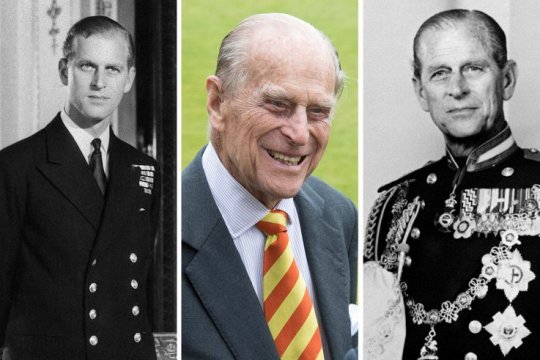
Contrary to what some might think I’m not really a fan girl when it comes to the royal family. I don’t religiously follow their every movement or utterance especially as I live in Paris and therefore I don’t really care about tabloid tittle tattle. I only get to hear of anything to do with the royal family when I speak to my parents or my great aunts and uncles for whom the subject is closer to their heart because of the services my family has rendered over past generations to the monarchy and the older (and dying) tight knit social circles they travel in.
Like Walter Bagehot, I’m more interested in the monarchy as an institution and its constitutional place within the historical, social, and political fabric of Britain and its continued delicate stabilising importance to that effect. It was Walter Bagehot, the great constitutional scholar and editor the Economist magazine, who said, “The mystic reverence, the religious allegiance, which are essential to a true monarchy, are imaginative sentiments that no legislature can manufacture in any people.” In his view, a politically-inactive monarchy served the best interests of the United Kingdom; by abstaining from direct rule, the monarch levitated above the political fray with dignity, and remained a respected personage to whom all subjects could look to as a guiding light.
Even as a staunch monarchist I freely confess that there has always been this odd nature of the relationship between hereditary monarchy and a society increasingly ambivalent about the institution. To paraphrase Bagehot again, there has been too much ‘daylight’ shone onto the ‘magic’ of the monarchy because we are obsessed with personalities as celebrities.
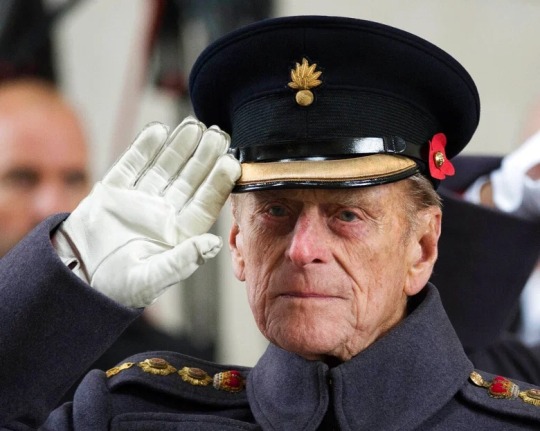
Having said that I did feel saddened by the passing of Prince Philip, the Duke of Edinburgh. After the Queen, he was my favourite royal. Anne, Princess Royal, would come next because she is very much like her father in temperament, humour, and character, so unlike her other brothers.
I have met the late Prince Philip when I was serving in the army in a few regimental meet-and-greet situations - which as you may know is pretty normal given that members of the royal family serve as honorary colonel-in-chiefs (patrons in effect) of all the British army regiments and corps.I also saw him at one or two social events such the annual charitable Royal Caledonian Ball (he’s an expert scottish reeler) and the Guards Polo Club where my older brothers played.
I’ll will freely confess that he was the one royal I could come close to identify with because his personal biography resonated with me a great deal.
Let’s be honest, the core Windsor family members, born to privilege, are conditioned and raised to be dull. Perhaps that’s a a tad harsh. I would prefer the term ‘anonymously self-effacing’, just another way of saying ‘for God’s sake don’t draw attention to yourself by saying or doing anything even mildly scandalous or political lest it invites public opprobrium and scrutiny’. The Queen magnificently succeeds in this but the others from Charles down just haven’t (with the exception of Princess Anne).
However, many people forget this obvious fact that it’s the incoming husbands and wives who marry into the Windsor family who are relied upon to bring colour and even liven things up a little. And long before Kate Middleton, Meghan Markle (very briefly), or Lady Diana Spencer, were the stars of ‘The Firm’- a phrase first coined by King George VI, Queen Elizabeth II's father who ruled from 1936 to 1952, who was thought to have wryly said, "British royals are 'not a family, we're a firm,” - it was Prince Philip who really livened things up and made the greater impact on the monarchy than any of them in the long term.
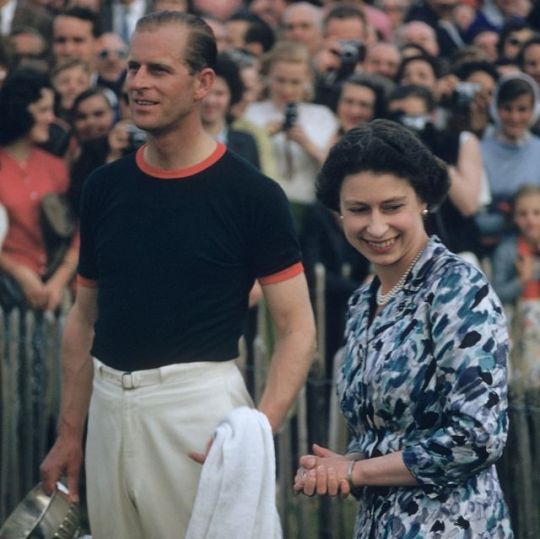
Prince Philip’s passing belied the truth of a far more complex individual: a destitute and penniless refugee Greek-Danish prince with a heart breaking backstory that could have been penned by any 19th Century novelist, and also eagle eyed reformer who tried to drag the royal family into the 20th century. At the core of the man - lost scion of a lost European royal dynasty, a courageous war veteran, and Queen’s consort - were values in which he attempted to transform and yet maintain much older inherited traditions and attitudes. Due to his great longevity, Philip’s life came to span a period of social change that is almost unprecedented, and almost no one in history viewed such a transformation from the front row.
Prince Philip would seem to represent in an acute form the best of the values of that era, which in many ways jar with today’s. He had fought with great courage in the war as a dashing young naval officer; he was regularly rude to foreigners, which was obviously a bonus to all Brits. He liked to ride and sail and shoot things. He was unsentimental almost to a comic degree, which felt reassuring at a time when a new-found emotional incontinence made many feel uncomfortable. Outrageous to some but endearing to others, he was the sort of man you’d want to go for a pint with, perhaps the ultimate compliment that an Englishman can pay to another Englishman. This has its own delicious irony as he wasn’t really an Englishman.
There are 4 takeways I would suggest in my appraisal of Prince Philip that stand out for me. So let me go through each one.
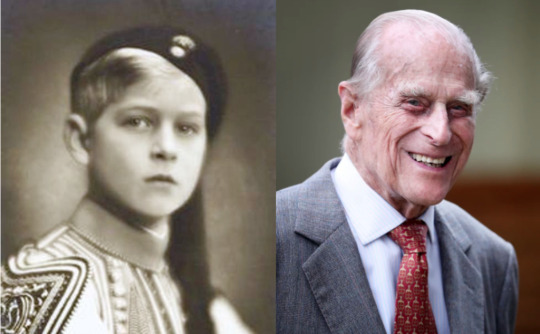
1. Prince Philip’s Internationalism
It may seem odd for me to say that Prince Philip wasn’t English but he wasn’t an Englishman in any real sense. He was a wretch of the world - stateless, homeless, and penniless. That the Prince of Nowhere became the British Monarchy’s figurehead was more than fitting for a great age of migration and transition in which the Royal Family survived and even flourished. That he was able to transform himself into the quintessential Englishman is testimony not just to his personal determination but also to the powerful cultural pull of Britishness.
He was born on a kitchen table in Corfu in June 1921. A year later in 1922, Philip, as the the great-great-grandson of Queen Victoria and nephew of Constantine I of Greece, was forced to flee with his family after the abdication of Constantine. He grew up outside Paris speaking French; ethnically he was mostly German although he considered himself Danish, his family originating from the Schleswig border region. He was in effect, despite his demeanour of Royal Navy officer briskness, a citizen of nowhere in an age of movement. From a very young age he was a stateless person, nationally homeless. Indeed, Philip was an outsider in a way that even Meghan Markle could never be; at his wedding in 1947, his three surviving sisters and two brothers-in-law were not permitted to attend because they were literally Britain’s enemies, having fought for the Germans. A third brother-in-law had even been in the SS, working directly for Himmler, but had been killed in the conflict.
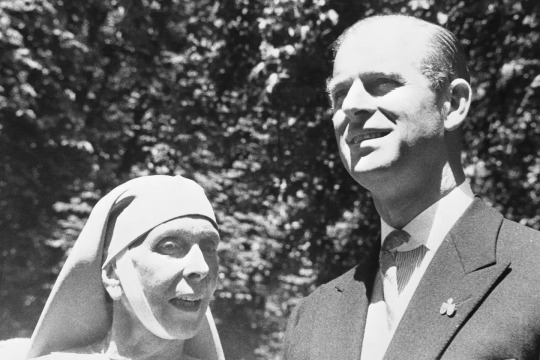
Even his religion was slightly exotic. He was Greek Orthodox until he converted to Anglicanism on marrying Elizabeth - what with his wife due to become supreme head of the Church and everything - but his ties with eastern Christianity remained. His great-aunts Princess Elisabeth of Hesse and by Rhine and Tsarina Alexandra are both martyrs of the Russian Orthodox Church, having been murdered by the Bolsheviks; Philip’s mother went on to become an Orthodox nun and a “Righteous Among the Nations” for saving a Jewish family during the Nazi occupation of Greece, spending much of her time in squalid poverty.
His parents were part of the largely German extended aristocracy who ruled almost all of Europe before it all came crashing down in 1918. When he died, aged 99, it marked a near-century in which all the great ideological struggles had been and gone; he had been born before the Soviet Union but outlived the Cold War, the War on Terror and - almost - Covid-19.
The world that Philip was born into was a far more violent and dangerous place than ours. In the year he was born, Irish rebels were still fighting Black and Tans; over the course of 12 months the Spanish and Japanese prime ministers were assassinated, there was a coup in Portugal and race riots in the United States. Germany was rocked by violence from the far-Left and far-Right, while in Italy a brutal new political movement, the Fascists, secured 30 seats in parliament, led by a trashy journalist called Benito Mussolini.
The worst violence, however, took place in Greece and Turkey. Following the defeat of the Ottoman Empire, what remained of Turkey was marked for permanent enfeeblement by the Allies. But much to everyone’s surprise the country’s force were roused by the brilliant officer Mustafa Kemal, who led the Turks to victory. Constantinople was lost to Christendom for good and thousands of years of Hellenic culture was put to the flames in Smyrna.
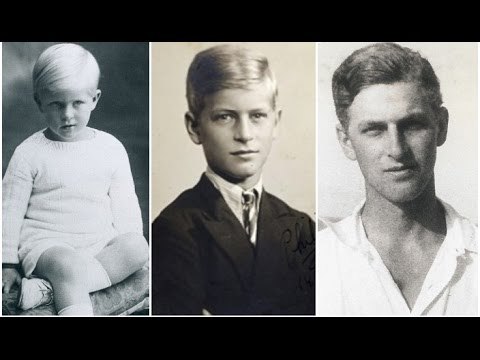
The Greek royal family, north German imports shipped in during the 19th century, bore much of the popular anger for this disaster. King Constantine fled to Italy, and his brother Andrew was arrested and only escaped execution through the intervention of his relative Britain’s George V. Andrew’s wife Alice, their four daughters and infant son Philip fled to France, completely impoverished but with the one possession that ensures that aristocrats are never truly poor: connections.
Philip had a traumatic childhood. He was forged by the turmoil of his first decade and then moulded by his schooling. His early years were spent wandering, as his place of birth ejected him, his family disintegrated and he moved from country to country, none of them ever his own. When he was just a year old, he and his family were scooped up by a British destroyer from his home on the Greek island of Corfu after his father had been condemned to death. They were deposited in Italy. One of Philip's first international journeys was spent crawling around on the floor of the train from an Italian port city, "the grubby child on the desolate train pulling out of the Brindisi night," as his older sister Sophia later described it.
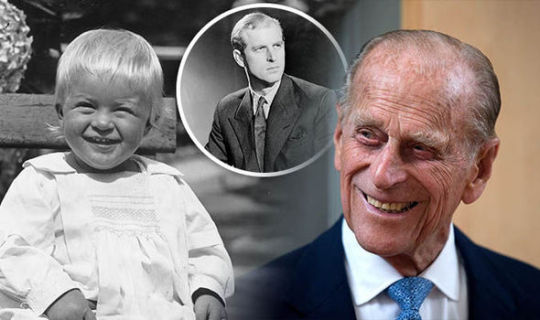
In Paris, he lived in a house borrowed from a relative; but it was not destined to become a home. In just one year, while he was at boarding school in Britain, the mental health of his mother, Princess Alice, deteriorated and she went into an asylum; his father, Prince Andrew, went off to Monte Carlo to live with his mistress. "I don't think anybody thinks I had a father," he once said. Andrew would die during the war. Philip went to Monte Carlo to pick up his father's possessions after the Germans had been driven from France; there was almost nothing left, just a couple of clothes brushes and some cuff-links.
Philip’s four sisters were all much older, and were soon all married to German aristocrats (the youngest would soon die in an aeroplane crash, along with her husband and children). His sisters became ever more embroiled in the German regime. In Scotland going to Gordonstoun boarding school, Philip went the opposite direction, becoming ever more British. Following the death of his sister Cecilie in a plane crash in 1937, the gulf widened. As the clouds of conflict gathered, the family simply disintegrated. With a flash of the flinty stoicism that many would later interpret, with no little justification, as self-reliance to the point of dispassion, the prince explained: “It’s simply what happened. The family broke up… I just had to get on with it. You do. One does.”
In the space of 10 years he had gone from a prince of Greece to a wandering, homeless, and virtually penniless boy with no-one to care for him. He got through it by making a joke of everything, and by being practical.
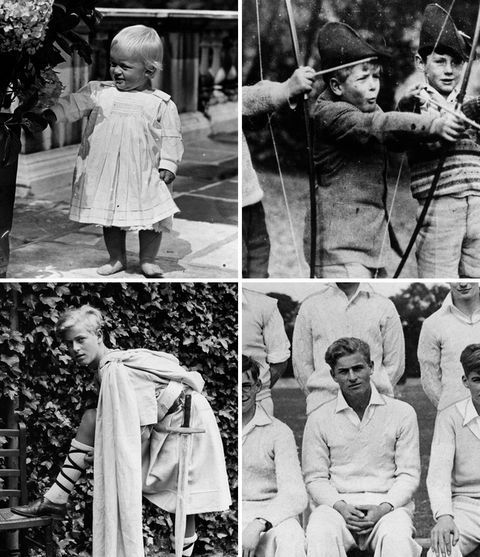
By the time he went to Gordonstoun, a private boarding school on the north coast of Scotland, Philip was tough, independent and able to fend for himself; he'd had to be. Gordonstoun would channel those traits into the school's distinct philosophy of community service, teamwork, responsibility and respect for the individual. And it sparked one of the great passions of Philip's life - his love of the sea. It was Gordonstoun that nurtured that love through the maturation of his character.
Philip adored the school as much as his son Charles would despise it. Not just because the stress it put on physical as well as mental excellence - he was a great sportsman. But because of its ethos, laid down by its founder Kurt Hahn, a Jewish exile from Nazi Germany.
Hahn first met Philip as a boy in Nazi Germany. Through a connection via one of his sister’s husbands, Philip, the poor, lonely boy was first sent off to a new school - in Nazi Germany. Which was as fun as can be imagined. Schloss Salem had been co-founded by stern educator called Kurt Hahn, a tough, discipline-obsessed conservative nationalist who saw civilisation in inexorable decline. But by this stage Hahn, persecuted for being Jewish in Nazi Germany, had fled to Britain, and Philip did not spend long at the school either, where pressure from the authorities was already making things difficult for the teachers. Philip laughed at the Nazis at first, because their salute was the same gesture the boys at his previous school had to make when they wanted to go to the toilet, but within a year he was back in England, a refugee once again.
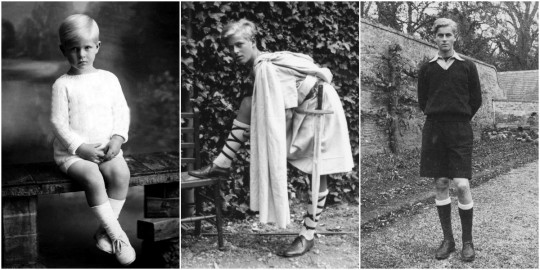
Philip happily attended Hahn’s new school, Gordonstoun, which the strict disciplinarian had set up in the Scottish Highlands. Inspired by Ancient Sparta, the boys (and then later girls) had to run around barefoot and endure cold showers, even in winter, the whole aim of which was to drive away the inevitable civilisational decay Hahn saw all around him. To 21st century ears it sounds like hell on earth, yet Philip enjoyed it, illustrating just what a totally alien world he came from.
That ethos became a significant, perhaps the significant, part of the way that Philip believed life should be lived. It shines through the speeches he gave later in his life. "The essence of freedom," he would say in Ghana in 1958, "is discipline and self-control." The comforts of the post-war era, he told the British Schools Exploring Society a year earlier, may be important "but it is much more important that the human spirit should not be stifled by easy living". And two years before that, he spoke to the boys of Ipswich School of the moral as well as material imperatives of life, with the "importance of the individual" as the "guiding principle of our society".
It was at Gordonstoun one of the great contradictions of Philip's fascinating life was born. The importance of the individual was what in Kurt Hahn's eyes differentiated Britain and liberal democracies from the kind of totalitarian dictatorship that he had fled. Philip put that centrality of the individual, and individual agency - the ability we have as humans to make our own moral and ethical decisions - at the heart of his philosophy.
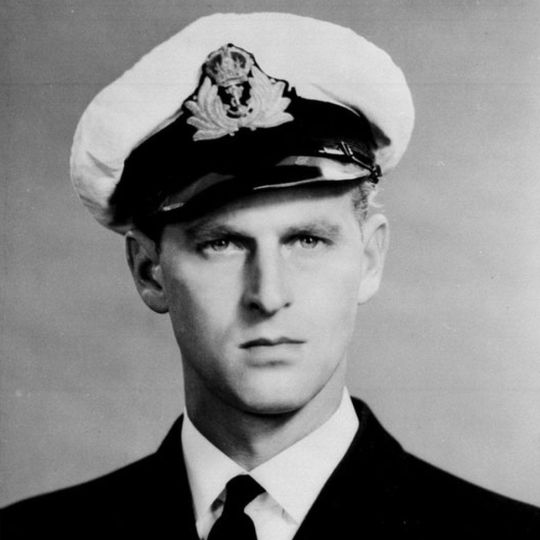
At Dartmouth Naval College in 1939, the two great passions of his life would collide. He had learned to sail at Gordonstoun; he would learn to lead at Dartmouth. And his driving desire to achieve, and to win, would shine through. Despite entering the college far later than most other cadets, he would graduate top of his class in 1940. In further training at Portsmouth, he gained the top grade in four out of five sections of the exam. He became one of the youngest first lieutenants in the Royal Navy.
The navy ran deep in his family. His maternal grandfather had been the First Sea Lord, the commander of the Royal Navy; his uncle, "Dickie" Mountbatten, had command of a destroyer while Philip was in training. In war, he showed not only bravery but guile. It was his natural milieu. "Prince Philip", wrote Gordonstoun headmaster Kurt Hahn admiringly, "will make his mark in any profession where he will have to prove himself in a trial of strength".
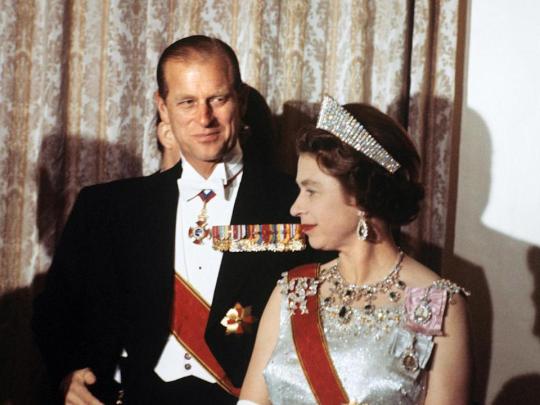
2. Prince Philip and the modernisation of the monarchy
In his own words, the process of defining what it meant to be a royal consort was one of “trial and error.” Speaking with BBC One’s Fiona Bruce in 2011, Philip explained, “There was no precedent. If I asked somebody, 'What do you expect me to do?' they all looked blank. They had no bloody idea, nobody had much idea.” So he forged for himself a role as a moderniser of the monarchy.
He could not have had much idea back in 1939. Back then in Dartmouth in 1939, as war became ever more certain, the navy was his destiny. He had fallen in love with the sea itself. "It is an extraordinary master or mistress," he would say later, "it has such extraordinary moods." But a rival to the sea would come.
When King George VI toured Dartmouth Naval College, accompanied by Philip's uncle, he brought with him his daughter, Princess Elizabeth. Philip was asked to look after her. He showed off to her, vaulting the nets of the tennis court in the grounds of the college. He was confident, outgoing, strikingly handsome, of royal blood if without a throne. She was beautiful, a little sheltered, a little serious, and very smitten by Philip.
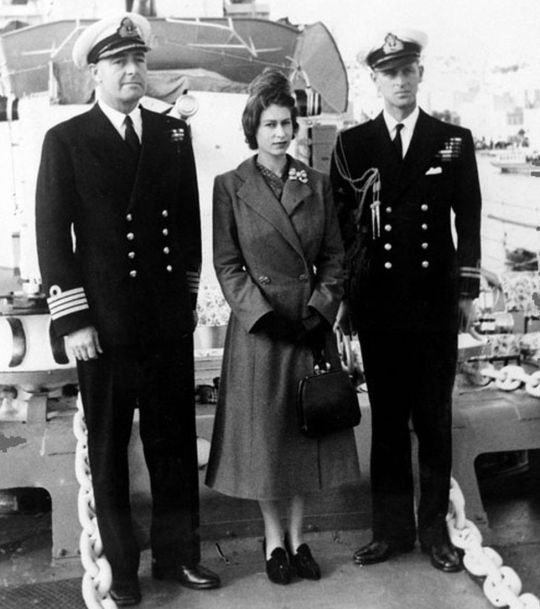
Did he know then that this was a collision of two great passions? That he could not have the sea and the beautiful young woman? For a time after their wedding in 1948, he did have both. As young newlyweds in Malta, he had what he so prized - command of a ship - and they had two idyllic years together. But the illness and then early death of King George VI brought it all to an end.
He knew what it meant, the moment he was told. Up in a lodge in Kenya, touring Africa, with Princess Elizabeth in place of the King, Philip was told first of the monarch's death in February 1952. He looked, said his equerry Mike Parker, "as if a ton of bricks had fallen on him". For some time he sat, slumped in a chair, a newspaper covering his head and chest. His princess had become the Queen. His world had changed irrevocably.
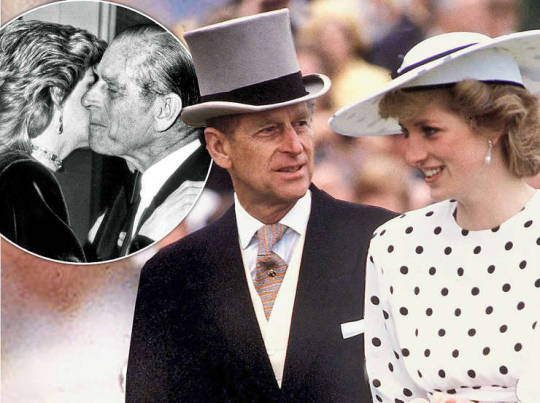
While the late Princess Diana was later to famously claim that there were “three people” in her marriage - herself, Prince Charles and Camilla - there were at least 55 million in Philip and Elizabeth’s. As Elizabeth dedicated her life to her people at Westminster Abbey at the Coronation on June 2, 1953, it sparked something of an existential crisis in Philip. Many people even after his death have never really understood this pivotal moment in Philip’s life. All his dreams of being a naval officer and a life at sea as well as being the primary provider and partner in his marriage were now sacrificed on the altar of duty and love.
With his career was now over, and he was now destined to become the spare part. Philip, very reasonably, asked that his future children and indeed his family be known by his name, Mountbatten. In effect he was asking to change the royal family’s name from the House of Windsor to the House of Mountbatten. But when Prime Minister Winston Churchill got wind of it as well as the more politically agile courtiers behind the Queen, a prolonged battle of wits ensued, and it was one Philip ultimately lost. It was only in 1957 that he accepted the title of “Prince.”
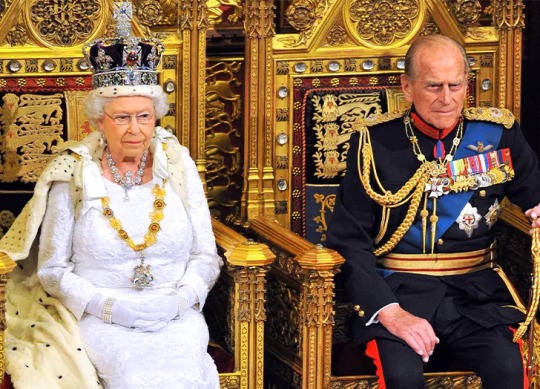
Even though he had almost lost everything dear to him and his role now undefined, he didn’t throw himself a pity party. He just got on with it. Philip tried to forge his own distinct role as second fiddle to the woman who had come to represent Great Britain. He designated himself the First Officer of the Good Ship Windsor. He set about dusting off some of the cobwebs off the throne and letting some daylight unto the workings of the monarchy by advocating reasonable amount of modernisation of the monarchy.
He had ideas about modernising the royal family that might be called “improving optics” today. But in his heart of hearts he didn’t want the monarchy to become a stuffy museum piece. He envisaged a less stuffy and more popular monarchy, relevant to the lives of ordinary people. Progress was always going to be incremental as he had sturdy opposition from the old guard who wanted to keep everything as it was, but nevertheless his stubborn energy resulted in significant changes.
When a commission chaired by Prince Philip proposed broadcasting the 1953 investiture ceremony that formally named Elizabeth II as queen on live television, Prime Minister Winston Churchill reacted with outright horror, declaring, “It would be unfitting that the whole ceremony should be presented as if it were a theatrical performance.” Though the queen had initially voiced similar concerns, she eventually came around to the idea, allowing the broadcast of all but one segment of the coronation. Ultimately, according to the BBC, more than 20 million people tuned in to the televised ceremony - a credit to the foresight of Philip.
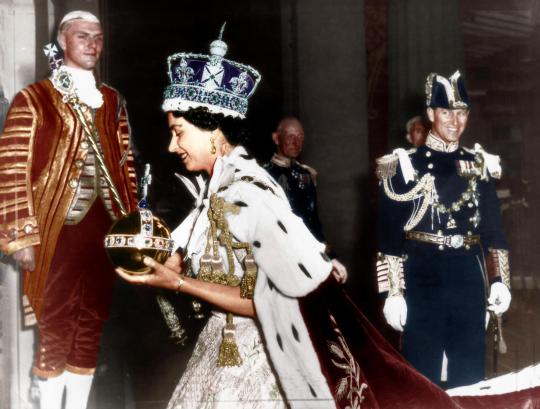
Elizabeth’s coronation marked a watershed moment for a monarchy that has, historically, been very hands off, old-fashioned and slightly invisible. Over the following years, the royals continued to embrace television as a way of connecting with the British people: In 1957, the queen delivered her annual Christmas address during a live broadcast. Again, this was Philip’s doing when he cajoled the Queen to televise her message live. He even helped her in how to use the teleprompter to get over her nerves and be herself on screen.
Four years later, in 1961, Philip became the first family member to sit for a television interview. It is hard for us to imagine now but back then it was huge. For many it was a significant step in modernising the monarchy.
Though not everything went to plan. Toward the end of the decade, the Windsors even invited cameras into their home. A 1969 BBC fly-on-the-wall documentary, instigated by Philip to show life behind the scenes, turned into an unmitigated disaster: “The Windsors” revealed the royals to be a fairly normal, if very rich, British upper-class family who liked barbecues, ice cream, watching television and bickering. The mystery of royalty took a hit below the waterline from their own torpedo, a self-inflicted wound from which they took a long time to recover. Shown once, the documentary was never aired again. But it had an irreversible effect, and not just by revealing the royals to be ordinary. By allowing the cameras in, Philip opened the lid to the prying eyes of the paparazzi who could legitimately argue that since the Royals themselves had sanctioned exposure, anything went. From then on, minor members of the House of Windsor were picked off by the press, like helpless tethered animals on a hunting safari.
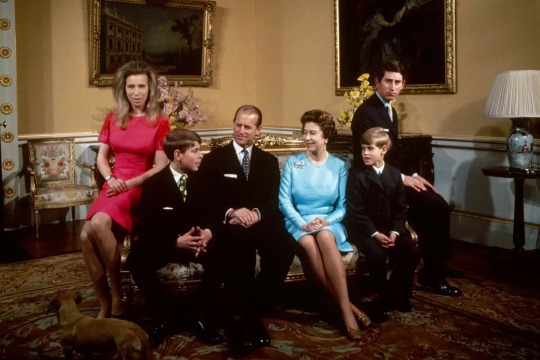
Prince Philip also took steps to reorganise and renovate the royal estates in Sandringham and Balmoral such as intercoms, modern dish washers, generally sought to make the royal household and the monarchy less stuffy, not to have so much formality everywhere.
Philip helped modernised the monarchy in other ways to acknowledge that the monarchy could be responsive to changes in society. It was Prince Philip - much to the chagrin of the haughty Princess Margaret and other stuffy old courtiers - who persuaded the Queen to host informal lunches and garden parties designed to engage a broader swath of the British public. Conversely, Prince Philip heartily encouraged the Queen (she was all for it apparently but was still finding her feet as a new monarch) to end the traditional practice of presenting debutantes from aristocratic backgrounds at court in 1952. For Philip and others it felt antiquated and out of touch with society. I know in speaking to my grandmother and others in her generation the decision was received with disbelief at how this foreign penniless upstart could come and stomp on the dreams of mothers left to clutch their pearls at the prospect there would be no shop window for their daughter to attract a suitable gentleman for marriage. One of my great aunts was over the moon happy that she never would have to go through what she saw as a very silly ceremony because she preferred her muddy wellies to high heels.
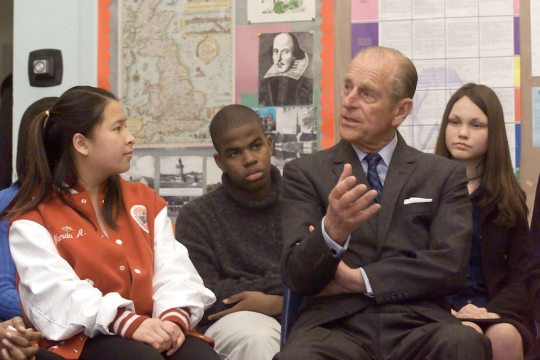
A former senior member of the royal household, who spent several years working as one of Prince Philip’s aides, and an old family friend, once told us around a family dinner table that the Duke of Edinburgh was undoubtedly given a sense of permanence by his marriage into the Royal Family that was missing from earlier years. But the royal aide would hastily add that Prince Philip, of course, would never see it that way.
Prince Philip’s attitude was to never brood on things or seek excuses. And he did indeed get on with the job in his own way - there should be no doubt that when it came to building and strengthening the Royal Family it was a partnership of equals with the Queen. Indeed contrary to Netflix’s hugely popular series ‘The Crown’ and its depiction of the royal marriage with Philip’s resentment at playing second fiddle, the prince recognised that his “first duty was to serve the Queen in the best way I could,” as he told ITV in 2011. Though this role was somewhat ill-suited to his dynamic, driven, and outspoken temperament, Philip performed it with utter devotion.
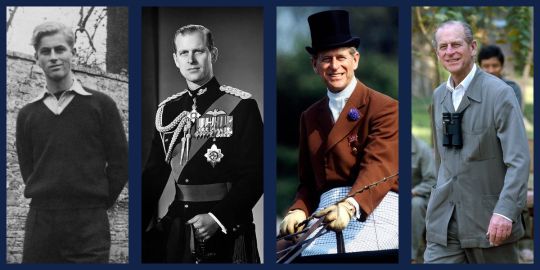
3. Prince Philip’s legacy
One could argue rightly that modernising the monarchy was his lasting legacy achievement. But he also tried to modernise a spent and exhausted Britain as it emerged from a ruinous war. When peace came, and with it eventual economic recovery, Philip would throw himself into the construction of a better Britain, urging the country to adopt scientific methods, embracing the ideas of industrial design, planning, education and training. A decade before Harold Wilson talked of the "white heat of the technological revolution", Philip was urging modernity on the nation in speeches and interviews. He was on top of his reading of the latest scientific breakthroughs and well read in break out innovations.
This interest in modernisation was only matched by his love for nature. As the country and the world became richer and consumed ever more, Philip warned of the impact on the environment, well before it was even vaguely fashionable. As president of the World Wildlife Fund (WWF) in the UK for more than 20 years from 1961, he was one of the first high-profile advocates of the cause of conservation and biological diversity at a time when it was considered the preserve of an eccentric few.
For a generation of school children in Britain and the Commonwealth though, his most lasting legacy and achievement will be the Duke of Edinburgh Awards (DofE). He set up the Duke of Edinburgh award, a scheme aimed at getting young people out into nature in search of adventure or be of service to their communities. It was a scheme that could match the legacy of Baden Powell’s scouts movement.
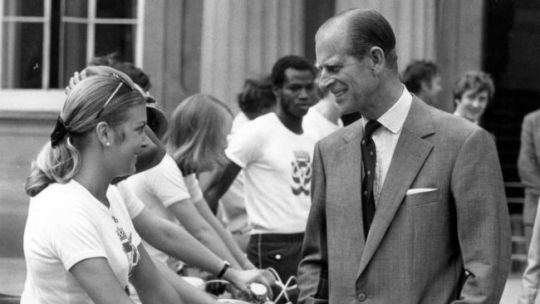
When Prince Philip first outlined his idea of a scheme to harness the values of his education at Gordonstoun by bringing character-building outdoor pursuits to the many rather than the fee-paying few, he received short shrift from the government of the day. The then minister of education, Sir David Eccles responded to the Duke’s proposal by saying: “I hear you’re trying to invent something like the Hitler Youth.” Undeterred he pushed on until it came to fruition.
I’m so glad that he did. I remember how proud I was for getting my DofE Awards while I was at boarding school. With the support of great mentors I managed to achieve my goals: collecting second-hand English books for a literacy programme for orphaned street children in Delhi, India with a close Indian school friend and her family; and completing a 350 mile hike following St. Olav’s Pilgrimmage Trail from Selånger, on the east coast of Sweden, and ending at Nidaros Cathedral in Trondheim, on the west coast of Norway.
It continues to be an enduring legacy. Since its launch in 1956, the Duke of Edinburgh awards have been bestowed upon some 2.5 million youngsters in Britain and some eight million worldwide. For a man who once referred to himself as a “Greek princeling of no consequence”, his pioneering tutelage of these two organisations (alongside some 778 other organisations of which he was either president or a patron) would be sufficient legacy for most.
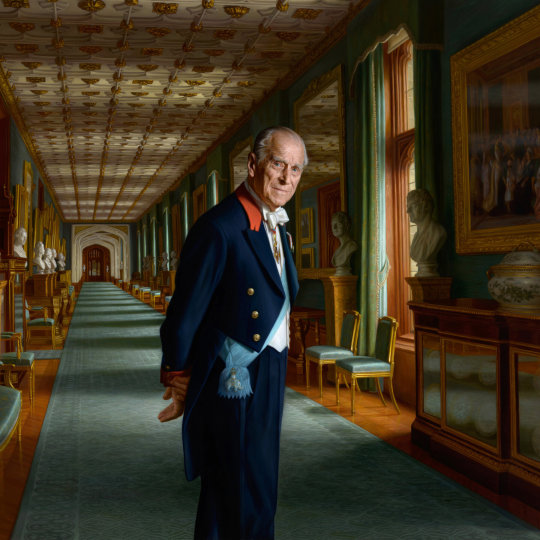
4. Prince Philip’s character
It may surprise some but what I liked most about Prince Philip was the very thing that helped him achieve so much and leave a lasting legacy: his character.
It is unhelpful to the caricature of Prince Philip as an unwavering but pugnacious consort whose chief talent was a dizzying facility in off-colour one-liners that he was widely read and probably the cleverest member of his family.
His private library at Windsor consists of 11,000 tomes, among them 200 volumes of poetry. He was a fan of Jung, TS Eliot, Shakespeare and the cookery writer Elizabeth David. As well as a lifelong fascination with science, technology and sport, he spoke fairly fluent French, painted and wrote a well received book on birds. It’s maddening to think how many underestimated his genuine intellect and how cultured he was behind the crusty exterior.
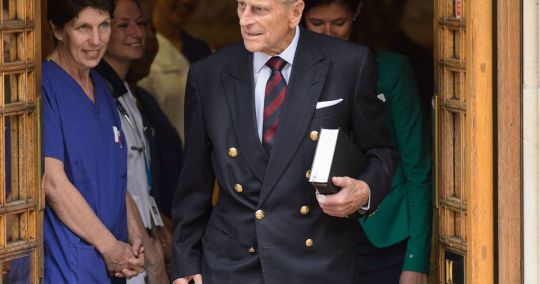
He didn’t have an entourage to fawn around him. He was the first to own a computer at Buckingham Palace. He answered his own phone and wrote and responded to his own correspondence. By force of character he fought the old guard courtiers at every turn to modernise the monarchy against their stubborn resistance.
Prince Philip was never given to self-analysis or reflection on the past. Various television interviewers tried without success to coerce him in to commenting on his legacy.But once when his guard was down he asked on the occasion of his 90th birthday what he was more proud of, he replied with characteristic bluntness: “I couldn’t care less. Who cares what I think about it, I mean it’s ridiculous.”
All of which neatly raises the profound aversion to fuss and the proclivity for tetchiness often expressed in withering put-downs that, for better or worse, will be the reflex memory for many of the Duke of Edinburgh. If character is a two edged sword so what of his gaffes?
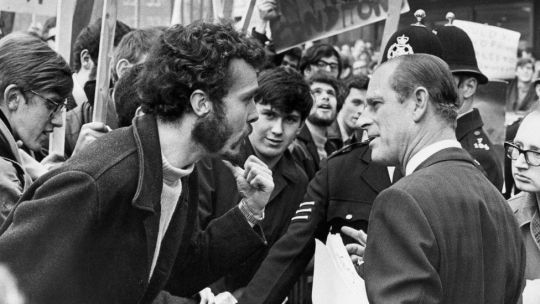
There is no doubt his cult status partly owed to his so-called legendary gaffes, of which there are enough to fill a book (indeed there is a book). But he was no racist. None of the Commonwealth people or foreign heads of state ever said this about him. Only leftist republicans with too much Twitter time on their hands screamed such a ridiculous accusation. They’re just overly sensitive snowflakes and being devoid of any humour they’re easily triggered.
There was the time that Philip accepted a gift from a local in Kenya, telling her she was a kind woman, and then adding: “You are a woman, aren’t you?” Or the occasion he remarked “You managed not to get eaten, then?” to a student trekking in Papua New Guinea. Then there was his World Wildlife Fund speech in 1986, when he said: “If it has got four legs and it is not a chair, if it has got two wings and it flies but is not an aeroplane, and if it swims and it is not a submarine, the Cantonese will eat it.” Well, he wasn’t wrong.
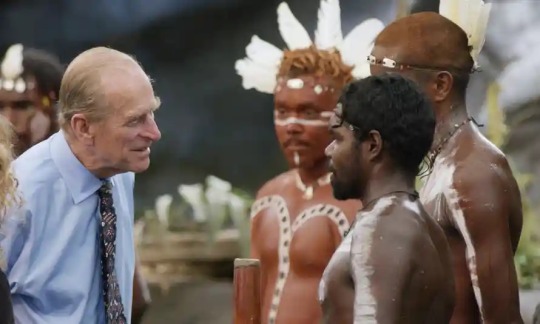
Philip quickly developed a reputation for what he once defined, to the General Dental Council, as “dentopedology – the science of opening your mouth and putting your foot in it”. Clearly he could laugh at himself as he often did as an ice breaker to put others at ease.
His remarking to the president of Nigeria, who was wearing national dress, “You look like you’re ready for bed”, or advising British students in China not to stay too long or they would end up with “slitty eyes”, is probably best written off as ill-judged humour. Telling a photographer to “just take the fucking picture” or declaring “this thing open, whatever it is”, were expressions of exasperation or weariness with which anyone might sympathise.
Above all, he was also capable of genuine if earthy wit, saying of his horse-loving daughter Princess Anne: “If it doesn’t fart or eat hay she isn’t interested.” Many people might have thought it but few dared say it. If Prince Philip’s famous gaffes provoked as much amusement as anger, it was precisely because they seem to give voice to the bewilderment and pent-up frustrations with which many people viewed the ever-changing modern world.
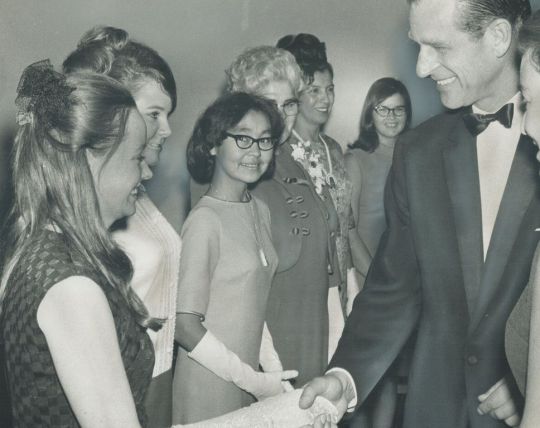
A former royal protection officer recounts how while on night duty guarding a visiting Queen and consort, he engaged in conversation with colleagues on a passing patrol. It was 2am and the officer had understood the royal couple to be staying elsewhere in the building until a window above his head was abruptly slammed open and an irate Prince Philip stuck his head out of the window to shout: “Would you fuck off!” Without another word, he then shut the window.
The Duke at least recognised from an early age that he was possessed of an abruptness that could all too easily cross the line from the refreshingly salty to crass effrontery.
One of his most perceptive biographers, Philip Eade, recounted how at the age of 21 the prince wrote a letter to a relation whose son had recently been killed in combat. He wrote: “I know you will never think much of me. I am rude and unmannerly and I say things out of turn which I realise afterwards must have hurt someone. Then I am filled with remorse and I try to put matters right.”
In the case of the royal protection officer, the Duke turned up in the room used by the police officers when off duty and said: “Terribly sorry about last night, wasn’t quite feeling myself.”
Aides have also ventured to explain away some of their employer’s more outlandish remarks - from asking Cayman islanders “You are descended from pirates aren’t you?” to enquiring of a female fashion writer if she was wearing mink knickers - as the price of his instinctive desire to prick the pomposity of his presence with a quip to put others at ease.
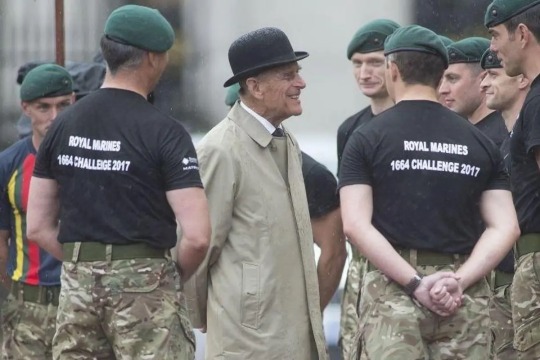
Indeed many people forget that his ‘gaffes’ were more typical of the clubbish humour of the British officer class – which of course would be less appreciated, sometimes even offensive, to other ears. It’s why he could relate so well to veterans who enjoyed his bonhomie company immensely.
But behind the irascibility, some have argued there also lay a darker nature, unpleasantly distilled in his flinty attitude to his eldest son. One anecdote tells of how, in the aftermath of the murder of the Duke’s uncle and surrogate father, Lord Mountbatten, Philip lectured his son, who was also extremely fond of his “honorary grandfather”, that he was not to succumb to self-pity. Charles left the room in tears and when his father was asked why he had spoken to his son with so little compassion, the Duke replied: “Because if there’s any crying to be done I want it to happen within this house, in front of his family, not in public. He must be toughened up, right now.”
But here I would say that Prince Philip’s intentions were almost always sincere and in no way cruel. He has always tried to protect his family - even from their own worst selves or from those outside the family ‘firm’ who may not have their best interest at heart.
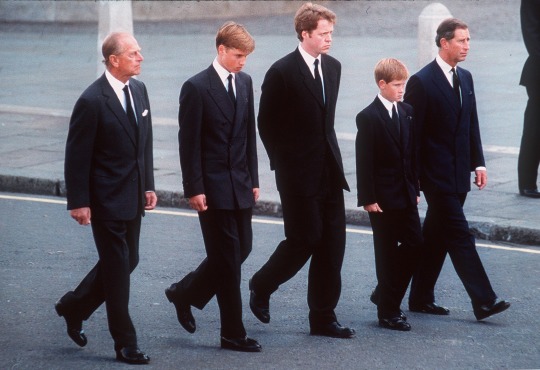
In 1937, a 16-year-old Prince Philip had walked behind his elder sister Cecile’s coffin after she was killed in a plane crash while heavily pregnant. The remains of newly-born infant found in the wreckage suggested the aircraft had perished as the pilot sought to make an emergency landing in fog as the mother entered childbirth. It was an excruciating taste of tragedy which would one day manifest itself in a very princely form of kindness that was deep down that defined Philip’s character.
When about 60 years later Prime Minister Tony Blair’s spin doctors in Downing Street tried to strong arm the Queen and the royal household over the the arrangements for the late Prince Diana’s funeral, it was Philip who stepped in front to protect his family. The Prime Minister and his media savvy spin doctors wanted the two young princes, William and Harry, to walk behind the coffin.
The infamous exchange was on the phone during a conference call between London and Balmoral, and the emotional Philip was reportedly backed by the Queen. The call was witnessed by Anji Hunter, who worked for Mr Blair. She said how surprised she was to hear Prince Philip’s emotion. ‘It’s about the boys,” he cried, “They’ve lost their mother”. Hunter thought to herself, “My God, there’s a bit of suffering going on up there”.’
Sky TV political commentator Adam Boulton (Anji Hunter’s husband) would write in his book Tony’s Ten Years: ‘The Queen relished the moment when Philip bellowed over the speakerphone from Balmoral, “Fuck off. We are talking about two boys who have just lost their mother”. Boulton goes on to say that Philip: ‘…was trying to remind everyone that human feelings were involved. No 10 were trying to help the Royals present things in the best way, but may have seemed insensitive.’
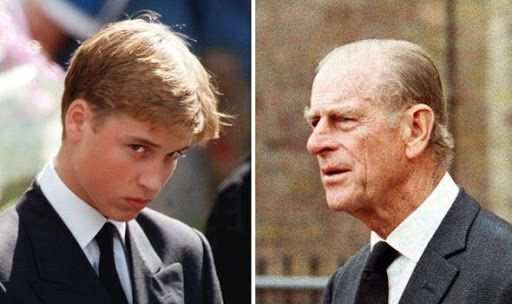
In the end the politicians almost didn’t get their way. Prince Philip stepped in to counsel his grandson, Prince William, after he had expressed a reluctance to follow his mother’s coffin after her death in Paris. Philip told the grieving child: “If you don’t walk, I think you’ll regret it later. If I walk, will you walk with me?”
It’s no wonder he was sought as a counsellor by other senior royals and especially close to his grandchildren, for whom he was a firm favourite. His relationship with Harry was said to have become strained, however, following the younger Prince’s decision to reject his royal inheritance for a life away from the public eye in America with his new American wife, Meghan Markle. For Prince Philip I am quite sure it went against all the elder Prince had lived his life by - self-sacrifice for the greater cause of royalty.
This is the key to Philip’s character and in understanding the man. The ingrained habits of a lifetime of duty and service in one form or another were never far away.
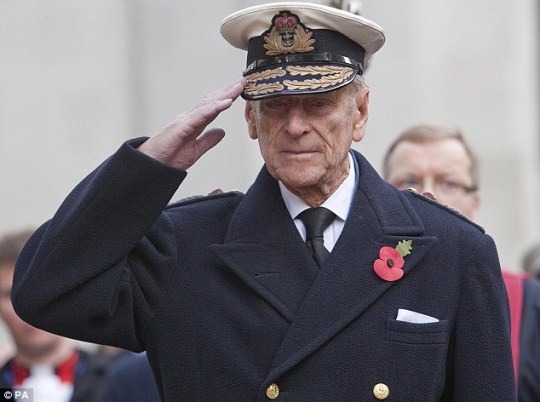
In conclusion then....
After more time passes I am sure historians will make a richer reassessment of Prince Philip’s life and legacy. Because Prince Philip was an extraordinary man who lived an extraordinary life; a life intimately connected with the sweeping changes of our turbulent 20th Century, a life of fascinating contrast and contradiction, of service and some degree of solitude. A complex, clever, eternally restless man that not even the suffocating protocols of royalty and tradition could bind him.
Although he fully accepted the limitations of public royal service, he did not see this as any reason for passive self-abnegation, but actively, if ironically, identified with his potentially undignified role. It is this bold and humorous embrace of fated restriction which many now find irksome: one is no longer supposed to mix public performance with private self-expression in quite this manner.
Yet such a mix is authentically Socratic: the proof that the doing of one’s duty can also be the way of self-fulfilment. The Duke’s sacrifice of career to romance and ceremonial office is all the more impressive for his not hiding some annoyance. The combination of his restless temperament and his deeply felt devotion to duty found fruitful expression; for instance, in the work of Saint George’s House Windsor - a centre and retreat that he created with Revd. Robin Woods - in exploring religious faith, philosophy, and contemporary issues.
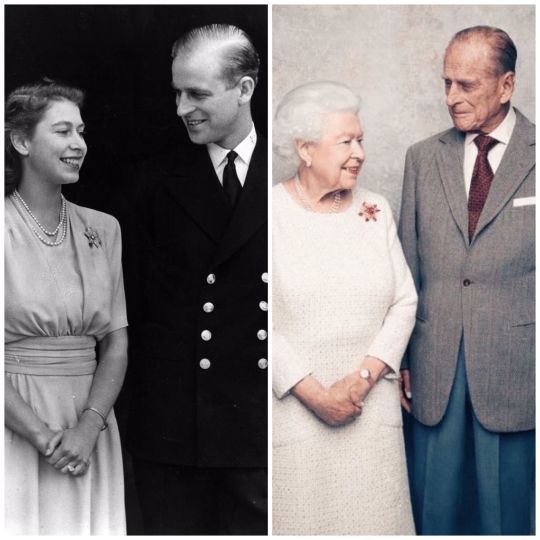
Above all he developed a way to be male that was both traditional and modern. He served one woman with chivalric devotion as his main task in life while fulfilling his public engagements in a bold and active spirit. He eventually embraced the opportunity to read and contemplate more. And yet, he remained loyal to the imperatives of his mentor Kurt Hahn in seeking to combine imagination with action and religious devotion with practical involvement.
Prince Philip took more pride in the roles he had accidentally inherited than in the personal gifts which he was never able fully to develop. He put companionship before self-realisation and acceptance of a sacred symbolic destiny before the mere influencing of events. In all these respects he implicitly rebuked our prevailing meritocracy which over-values officially accredited attainment, and our prevailing narcissism which valorises the assertion of discrete identities.
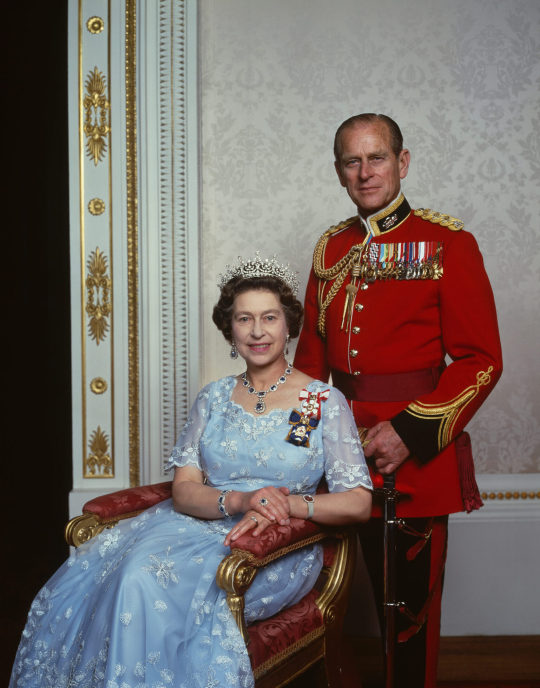
Prince Philip was Britain’s longest-serving consort. He was steadfast, duty driven, and a necessary adjunct to the continuity and stability of the Queen and the monarchy. Of all the institutions that have lost the faith of the British public in this period - the Church, Parliament, the media, the police - the Monarchy itself has surprisingly done better than most at surviving, curiously well-adapted to a period of societal change and moral anarchy. The House of Hanover and later Saxe-Coburg and Gotha (changed to Windsor), since their arrival in this country in 1714, have been noted above all for their ability to adapt. And just as they survived the Victorian age by transforming themselves into the bourgeoise, domestic ideal, so they have survived the new Elizabethan era (Harry-Meghan saga is just a passing blip like the Edward-Wallis Simpson saga of the 1930s).
There was once a time when the Royal’s German blood was a punchline for crude and xenophobic satirists. Now it is the royals who are deeply British while the country itself is increasingly cosmopolitan and globalised. British society has seen a greater demographic change than the preceding four or five thousand years combined, the second Elizabethan age has been characterised more than anything by a transformational movement of people. Prince Philip, the Greek-born, Danish-German persecuted and destitute wanderer who came to become one of the Greatest Britons of the past century, perhaps epitomised that era better than anyone else. And he got through it by making a joke of everything, and by being practical.
I hope I don’t exaggerate when I say that in our troubled times over identity, and our place and purpose in the world, we need to heed his selfless example more than ever.
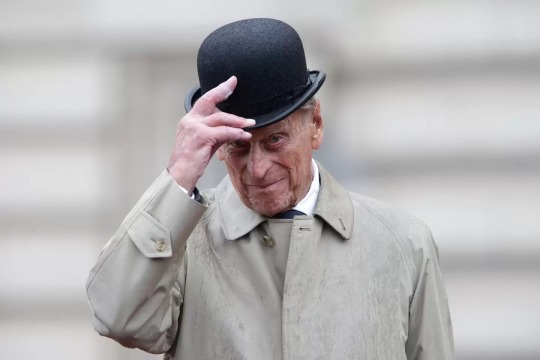
As Heraclitus wisely said, Ήθος ανθρώπω δαίμων (Character is destiny.)
RIP Prince Philip. You were my prince. God damn you, I miss you already.
Thanks for your question.
#question#ask#prince philip#duke of edinburgh#queen elizabeth II#the queen of spades#monarchy#britain#british#royalty#politics#history#culture#europe#crown#icon#great briton#society
284 notes
·
View notes
Text
H E A D C A N O N.. * CHARACTER INTERVIEW .
BASICS !
NAME . diana princess of themyscira NICKNAME . wonder woman AGE . 972 SPECIES . amazon/demigod
PERSONAL !
MORALITY . lawful / chaotic / good / neutral / evil / true / RELIGION . hellenism/hellenic polytheism & hellenistic judaism SINS . greed / gluttony / sloth / lust / pride / envy / wrath. VIRTUES . chastity / charity / diligence / humility / kindness / patience / justice KNOWN LANGUAGES . hundreds SECRETS . the fact that she’s a whole ass superhero.
PHYSICAL !
BUILD . scrawny / bony / slender / fit / athletic / curvy / herculean / pudgy / average HEIGHT . 6′4″ SCARS / BIRTHMARKS . small scar left outer bicep, a few small scars here and there from various battles. ABILITIES / POWERS . superhuman strength, superhuman durability, flight, superhuman speed, superhuman reflexes, superhuman agility, superhuman stamina, enhanced/accelerated healing, enhanced senses, empathy, animal empathy/telepathy, suspended aging, minor magic, excellent in hand to hand combat, the wisdom of athena, master tactician & strategist, skilled with numerous weapons (long and short blades, lasso, archery, throwing), skilled equestrian, & expert pilot.
FAVORITES !
FOOD . seafood & fish in general, she’s quite fond of salmon with creamy dill sauce. DRINK . water, beer, tea, wine. PIZZA TOPPING . spinach, olives, olive oil instead of tomato sauce. COLOR . gold MUSIC GENRE . she’s fond of classical and jazz ! BOOK GENRE . non-fiction, history MOVIE GENRE . really anything CURSE WORD . she’s fond of arschgesicht and dégage SCENTS . salty/ocean air, snow, woodsy, natural floral fragrances.
FUN STUFF !
BOTTOM OR TOP . switch. definitely more of a top. SINGS IN THE SHOWER . oh fuck yes LIKES PUNS . definitely. she finds them endearing
TAGGED BY . @spaceraised ! TAGGING . @unastute @itsnotpatsy @conquersbrains @femalesarestrxngashell @luthordivergent @cvldthief @biggaywoolf && YOU
#&. ( if not winter ) about#○#about | diana prince#&. ( cunning weaver of fantasies and fables ) headcanon#○ headcanon | diana prince
3 notes
·
View notes
Text
Events 11.25 (before 1920)
571 BC – Servius Tullius, king of Rome, celebrates the first of his three triumphs for his victory over the Etruscans. 1034 – Máel Coluim mac Cináeda, King of Scots, dies. His grandson, Donnchad, son of Bethóc and Crínán of Dunkeld, inherits the throne. 1120 – The White Ship sinks in the English Channel, drowning William Adelin, son and heir of Henry I of England. 1177 – Baldwin IV of Jerusalem and Raynald of Châtillon defeat Saladin at the Battle of Montgisard. 1343 – A tsunami, caused by an earthquake in the Tyrrhenian Sea, devastates Naples and the Maritime Republic of Amalfi, among other places. 1400 – King Minkhaung I becomes king of Ava. 1487 – Elizabeth of York is crowned Queen of England. 1491 – The siege of Granada, the last Moorish stronghold in Spain, ends with the Treaty of Granada. 1510 – Portuguese conquest of Goa: Portuguese naval forces under the command of Afonso de Albuquerque, and local mercenaries working for privateer Timoji, seize Goa from the Bijapur Sultanate, resulting in 451 years of Portuguese colonial rule. 1596 – The Cudgel War begins in Finland (at the time part of Sweden), when peasants rebel against the imposition of taxes by the nobility. 1667 – A deadly earthquake rocks Shemakha in the Caucasus, killing 80,000 people. 1678 – Trunajaya rebellion: After a long and logistically challenging march, the allied Mataram and Dutch troops successfully assaulted the rebel stronghold of Kediri. 1755 – King Ferdinand VI of Spain grants royal protection to the Beaterio de la Compañia de Jesus, now known as the Congregation of the Religious of the Virgin Mary. 1758 – French and Indian War: British forces capture Fort Duquesne from French control. Later, Fort Pitt will be built nearby and grow into modern Pittsburgh. 1759 – An earthquake hits the Mediterranean destroying Beirut and Damascus and killing 30,000–40,000. 1783 – American Revolutionary War: The last British troops leave New York City three months after the signing of the Treaty of Paris. 1795 – Partitions of Poland: Stanisław August Poniatowski, the last king of independent Poland, is forced to abdicate and is exiled to Russia. 1826 – The Greek frigate Hellas arrives in Nafplion to become the first flagship of the Hellenic Navy. 1833 – A massive undersea earthquake, estimated magnitude between 8.7 and 9.2, rocks Sumatra, producing a massive tsunami all along the Indonesian coast. 1839 – A cyclone slams into south-eastern India. An estimated 300,000 deaths resulted from the disaster. 1863 – American Civil War: Battle of Missionary Ridge: Union forces led by General Ulysses S. Grant break the Siege of Chattanooga by routing Confederate troops under General Braxton Bragg at Missionary Ridge in Tennessee. 1864 – American Civil War: A group of Confederate operatives calling themselves the Confederate Army of Manhattan starts fires in more than 20 locations in an unsuccessful attempt to burn down New York City. 1874 – The United States Greenback Party is established as a political party consisting primarily of farmers affected by the Panic of 1873. 1876 – American Indian Wars: In retaliation for the American defeat at the Battle of the Little Bighorn, United States Army troops sack the sleeping village of Cheyenne Chief Dull Knife at the headwaters of the Powder River. 1905 – Prince Carl of Denmark arrives in Norway to become King Haakon VII of Norway. 1908 – A fire breaks out on SS Sardinia as it leaves Malta's Grand Harbour, resulting in the ship's grounding and the deaths of at least 118 people. 1912 – Românul de la Pind, the longest-running newspaper by and about Aromanians until World War II, ceases its publications. 1915 – Albert Einstein presents the field equations of general relativity to the Prussian Academy of Sciences. 1917 – World War I: German forces defeat Portuguese army of about 1,200 at Negomano on the border of modern-day Mozambique and Tanzania. 1918 – Vojvodina, formerly Austro-Hungarian crown land, proclaims its secession from Austria-Hungary to join the Kingdom of Serbia.
0 notes
Text
Events 4.4
503 BC – Roman consul Agrippa Menenius Lanatus celebrates a triumph for a military victory over the Sabines. 1147 – Moscow is mentioned for the first time in the historical record, when it is named as a meeting place for two princes. 1268 – A five-year Byzantine–Venetian peace treaty is concluded between Venetian envoys and Emperor Michael VIII Palaiologos. 1423 – Death of the Venetian Doge Tommaso Mocenigo, under whose rule victories were achieved against the Kingdom of Hungary and against the Ottoman Empire at the Battle of Gallipoli (1416). 1460 – Basel University is founded. 1581 – Francis Drake is knighted for completing a circumnavigation of the world. 1609 – Moriscos are expelled from the Kingdom of Valencia. 1660 – Declaration of Breda by King Charles II of Great Britain promises, among other things, a general pardon to all royalists for crimes committed during the English Civil War and the Interregnum. 1721 – Sir Robert Walpole becomes the first British prime minister. 1768 – In London, Philip Astley stages the first modern circus. 1796 – Georges Cuvier delivers the first paleontological lecture. 1814 – Napoleon abdicates for the first time and names his son Napoleon II as Emperor of the French. 1818 – The United States Congress, affirming the Second Continental Congress, adopts the flag of the United States with 13 red and white stripes and one star for each state (20 at that time). 1841 – William Henry Harrison dies of pneumonia, becoming the first President of the United States to die in office, and setting the record for the briefest administration. Vice President John Tyler succeeds Harrison as President. 1850 – A large part of the English village of Cottenham burns to the ground in suspicious circumstances. 1850 – Los Angeles is incorporated as a city. 1859 – Bryant's Minstrels debut "Dixie" in New York City in the finale of a blackface minstrel show. 1865 – American Civil War: A day after Union forces capture Richmond, Virginia, U.S. President Abraham Lincoln visits the Confederate capital. 1866 – Alexander II of Russia narrowly escapes an assassination attempt by Dmitry Karakozov in the city of Saint Petersburg. 1873 – The Kennel Club is founded, the oldest and first official registry of purebred dogs in the world. 1875 – Vltava, composed by Czech composer Bedřich Smetana and also known by its German name Die Moldau, premiered in Prague. 1887 – Argonia, Kansas elects Susanna M. Salter as the first female mayor in the United States. 1905 – In India, an earthquake hits the Kangra Valley, killing 20,000, and destroying most buildings in Kangra, McLeod Ganj and Dharamshala. 1913 – First Balkan War: Greek aviator Emmanouil Argyropoulos becomes the first pilot to die in the Hellenic Air Force when his plane crashes. 1925 – The Schutzstaffel (SS) is founded under Adolf Hitler's Nazi party in Germany. 1933 – U.S. Navy airship USS Akron is wrecked off the New Jersey coast due to severe weather. 1939 – Faisal II becomes King of Iraq. 1944 – World War II: First bombardment of oil refineries in Bucharest by Anglo-American forces kills 3000 civilians. 1945 – World War II: American troops liberate Ohrdruf forced labor camp in Germany. 1945 – World War II: American troops capture Kassel. 1945 – World War II: Soviet troops liberate Hungary from German occupation and occupy the country themselves. 1949 – Cold War: Twelve nations sign the North Atlantic Treaty creating the North Atlantic Treaty Organization. 1958 – The CND peace symbol is displayed in public for the first time in London. 1960 – France agrees to grant independence to the Mali Federation, a union of Senegal and French Sudan. 1964 – The Beatles occupy the top five positions on the Billboard Hot 100 pop chart. 1965 – The first model of the new Saab Viggen fighter aircraft is unveiled. 1967 – Martin Luther King Jr. delivers his "Beyond Vietnam: A Time to Break Silence" speech in New York City's Riverside Church. 1968 – Martin Luther King Jr. is assassinated by James Earl Ray at a motel in Memphis, Tennessee. 1968 – Apollo program: NASA launches Apollo 6. 1968 – A.E.K. Athens B.C. becomes the first Greek team to win the European Basketball Cup. 1969 – Dr. Denton Cooley implants the first temporary artificial heart. 1973 – The Twin Towers of the World Trade Center in New York City are officially dedicated. 1973 – A Lockheed C-141 Starlifter, dubbed the Hanoi Taxi, makes the last flight of Operation Homecoming. 1975 – Microsoft is founded as a partnership between Bill Gates and Paul Allen in Albuquerque, New Mexico. 1975 – Vietnam War: A United States Air Force Lockheed C-5A Galaxy transporting orphans, crashes near Saigon, South Vietnam shortly after takeoff, killing 172 people. 1979 – Prime Minister Zulfikar Ali Bhutto of Pakistan is executed. 1981 – Iran–Iraq War: The Islamic Republic of Iran Air Force mounts an attack on H-3 Airbase and destroys about 50 Iraqi aircraft. 1983 – Space Shuttle program: Space Shuttle Challenger makes its maiden voyage into space. 1984 – President Ronald Reagan calls for an international ban on chemical weapons. 1988 – Governor Evan Mecham of Arizona is convicted in his impeachment trial and removed from office. 1990 – The current flag of Hong Kong is adopted for post-colonial Hong Kong during the Third Session of the Seventh National People's Congress. 1991 – Senator John Heinz of Pennsylvania and six others are killed when a helicopter collides with their airplane over an elementary school in Merion, Pennsylvania. 1994 – Marc Andreessen and Jim Clark found Netscape Communications Corporation under the name Mosaic Communications Corporation. 1996 – Comet Hyakutake is imaged by the USA Asteroid Orbiter Near Earth Asteroid Rendezvous. 2002 – The Angolan government and UNITA rebels sign a peace treaty ending the Angolan Civil War. 2009 – France announces its return to full participation of its military forces within NATO. 2013 – More than 70 people are killed in a building collapse in Thane, India. 2020 – China holds a National day of mourning for martyrs who died in the fight against the novel coronavirus disease outbreak.
3 notes
·
View notes
Text
Events 11.25
571 BC – Servius Tullius, king of Rome, celebrates the first of his three triumphs for his victory over the Etruscans. 1034 – Máel Coluim mac Cináeda, King of Scots, dies. His grandson, Donnchad, son of Bethóc and Crínán of Dunkeld, inherits the throne. 1120 – The White Ship sinks in the English Channel, drowning William Adelin, son and heir of Henry I of England. 1177 – Baldwin IV of Jerusalem and Raynald of Châtillon defeat Saladin at the Battle of Montgisard. 1343 – A tsunami, caused by an earthquake in the Tyrrhenian Sea, devastates Naples and the Maritime Republic of Amalfi, among other places. 1400 – King Minkhaung I becomes king of Ava. 1487 – Elizabeth of York is crowned Queen of England. 1491 – The siege of Granada, the last Moorish stronghold in Spain, ends with the Treaty of Granada. 1510 – Portuguese conquest of Goa: Portuguese naval forces under the command of Afonso de Albuquerque, and local mercenaries working for privateer Timoji, seize Goa from the Bijapur Sultanate, resulting in 451 years of Portuguese colonial rule. 1596 – The Cudgel War begins in Finland (at the time part of Sweden), when peasants rebel against the imposition of taxes by the nobility. 1667 – A deadly earthquake rocks Shemakha in the Caucasus, killing 80,000 people. 1678 – Trunajaya rebellion: After a long and logistically challenging march, the allied Mataram and Dutch troops successfully assaulted the rebel stronghold of Kediri. 1755 – King Ferdinand VI of Spain grants royal protection to the Beaterio de la Compañia de Jesus, now known as the Congregation of the Religious of the Virgin Mary. 1758 – French and Indian War: British forces capture Fort Duquesne from French control. Later, Fort Pitt will be built nearby and grow into modern Pittsburgh. 1759 – An earthquake hits the Mediterranean destroying Beirut and Damascus and killing 30,000–40,000. 1783 – American Revolutionary War: The last British troops leave New York City three months after the signing of the Treaty of Paris. 1795 – Partitions of Poland: Stanisław August Poniatowski, the last king of independent Poland, is forced to abdicate and is exiled to Russia. 1826 – The Greek frigate Hellas arrives in Nafplion to become the first flagship of the Hellenic Navy. 1833 – A massive undersea earthquake, estimated magnitude between 8.7 and 9.2, rocks Sumatra, producing a massive tsunami all along the Indonesian coast. 1839 – A cyclone slams into south-eastern India, with high winds and a 12-metre (40 ft) storm surge destroying the port city of Coringa (which has never been completely rebuilt). The storm wave swept inland, taking with it 20,000 ships and thousands of people. An estimated 300,000 deaths resulted from the disaster. 1863 – American Civil War: Battle of Missionary Ridge: At Missionary Ridge in Tennessee, Union forces led by General Ulysses S. Grant break the Siege of Chattanooga by routing Confederate troops under General Braxton Bragg. 1864 – American Civil War: A group of Confederate operatives calling themselves the Confederate Army of Manhattan starts fires in more than 20 locations in an unsuccessful attempt to burn down New York City. 1874 – The United States Greenback Party is established as a political party consisting primarily of farmers affected by the Panic of 1873. 1876 – American Indian Wars: In retaliation for the American defeat at the Battle of the Little Bighorn, United States Army troops sack the sleeping village of Cheyenne Chief Dull Knife at the headwaters of the Powder River. 1905 – Prince Carl of Denmark arrives in Norway to become King Haakon VII of Norway. 1908 – A fire breaks out on SS Sardinia as it leaves Malta's Grand Harbour, resulting in the ship's grounding and the deaths of at least 118 people. 1912 – Românul de la Pind, the longest-running newspaper by and about Aromanians until World War II, ceases its publications. 1915 – Albert Einstein presents the field equations of general relativity to the Prussian Academy of Sciences. 1917 – World War I: German forces defeat Portuguese army of about 1,200 at Negomano on the border of modern-day Mozambique and Tanzania. 1918 – Vojvodina, formerly Austro-Hungarian crown land, proclaims its secession from Austria-Hungary to join the Kingdom of Serbia. 1926 – The deadliest November tornado outbreak in U.S. history kills 76 people and injures more than 400. 1936 – In Berlin, Germany and Japan sign the Anti-Comintern Pact, agreeing to consult on measures "to safeguard their common interests" in the case of an unprovoked attack by the Soviet Union against either nation. The pact is renewed on the same day five years later with additional signatories. 1941 – HMS Barham is sunk by a German torpedo during World War II. 1943 – World War II: Statehood of Bosnia and Herzegovina is re-established at the State Anti-fascist Council for the National Liberation of Bosnia and Herzegovina. 1947 – Red Scare: The "Hollywood Ten" are blacklisted by Hollywood movie studios. 1947 – New Zealand ratifies the Statute of Westminster and thus becomes independent of legislative control by the United Kingdom. 1950 – The Great Appalachian Storm of 1950 impacts 22 American states, killing 353 people, injuring over 160, and causing US$66.7 million in damages (1950 dollars). 1952 – Agatha Christie's murder-mystery play The Mousetrap opens at the Ambassadors Theatre in London's West End after a premiere in Nottingham, UK. It will become the longest continuously running play in history. 1952 – Korean War: After 42 days of fighting, the Battle of Triangle Hill ends in a Chinese victory. American and South Korean units abandon their attempt to capture the "Iron Triangle". 1958 – French Sudan gains autonomy as a self-governing member of the French Community. 1960 – The Mirabal sisters of the Dominican Republic are assassinated. 1963 – State funeral of John F. Kennedy; after lying in state at the United States Capitol, a Requiem Mass takes place at Cathedral of St. Matthew the Apostle and the President is buried at Arlington National Cemetery. 1968 – The Old Student House in Helsinki, Finland is occupied by a large group of University of Helsinki students. 1970 – In Japan, author Yukio Mishima and one compatriot commit ritualistic seppuku after an unsuccessful coup attempt. 1973 – Georgios Papadopoulos, head of the military Regime of the Colonels in Greece, is ousted in a hardliners' coup led by Brigadier General Dimitrios Ioannidis. 1975 – Suriname gains independence from the Netherlands. 1977 – Former Senator Benigno Aquino Jr., is found guilty by the Philippine Military Commission No. 2 and is sentenced to death by firing squad. He is later assassinated in 1983. 1981 – Pope John Paul II appoints Joseph Cardinal Ratzinger (the future Pope Benedict XVI) Prefect of the Congregation for the Doctrine of the Faith. 1984 – Thirty-six top musicians gather in a Notting Hill studio and record Band Aid's "Do They Know It's Christmas?" in order to raise money for famine relief in Ethiopia. 1986 – Iran–Contra affair: U.S. Attorney General Edwin Meese announces that profits from covert weapons sales to Iran were illegally diverted to the anti-communist Contra rebels in Nicaragua. 1986 – The King Fahd Causeway is officially opened in the Persian Gulf. 1987 – Typhoon Nina pummels the Philippines with category 5 winds of 265 km/h (165 mph) and a surge that destroys entire villages. At least 1,036 deaths are attributed to the storm. 1992 – The Federal Assembly of Czechoslovakia votes to split the country into the Czech Republic and Slovakia, with effect from January 1, 1993. 1999 – A five-year-old Cuban boy, Elian Gonzalez, is rescued by fishermen while floating in an inner tube off the Florida coast. 2000 – The 2000 Baku earthquake, with a Richter magnitude of 7.0, leaves 26 people dead in Baku, Azerbaijan, and becomes the strongest earthquake in the region in 158 years. 2008 – Cyclone Nisha strikes northern Sri Lanka, killing 15 people and displacing 90,000 others while dealing the region the highest rainfall in nine decades. 2009 – Jeddah floods: Freak rains swamp the city of Jeddah, Saudi Arabia, during an ongoing Hajj pilgrimage. Three thousand cars are swept away and 122 people perish in the torrents, with 350 others missing.
1 note
·
View note
Text
Events 11.25
571 BC – Servius Tullius, king of Rome, celebrates the first of his three triumphs for his victory over the Etruscans. 1034 – Máel Coluim mac Cináeda, King of Scots, dies. His grandson, Donnchad, son of Bethóc and Crínán of Dunkeld, inherits the throne. 1120 – The White Ship sinks in the English Channel, drowning William Adelin, son and heir of Henry I of England. 1177 – Baldwin IV of Jerusalem and Raynald of Châtillon defeat Saladin at the Battle of Montgisard. 1343 – A tsunami, caused by an earthquake in the Tyrrhenian Sea, devastates Naples and the Maritime Republic of Amalfi, among other places. 1400 – King Minkhaung I becomes king of Ava. 1487 – Elizabeth of York is crowned Queen of England. 1491 – The siege of Granada, the last Moorish stronghold in Spain, ends with the Treaty of Granada. 1510 – Portuguese conquest of Goa: Portuguese naval forces under the command of Afonso de Albuquerque, and local mercenaries working for privateer Timoji, seize Goa from the Bijapur Sultanate, resulting in 451 years of Portuguese colonial rule. 1596 – The Cudgel War begins in Finland (at the time part of Sweden), when peasants rebel against the imposition of taxes by the nobility. 1667 – A deadly earthquake rocks Shemakha in the Caucasus, killing 80,000 people. 1678 – Trunajaya rebellion: After a long and logistically challenging march, the allied Mataram and Dutch troops successfully assaulted the rebel stronghold of Kediri. 1755 – King Ferdinand VI of Spain grants royal protection to the Beaterio de la Compañia de Jesus, now known as the Congregation of the Religious of the Virgin Mary. 1758 – French and Indian War: British forces capture Fort Duquesne from French control. Later, Fort Pitt will be built nearby and grow into modern Pittsburgh. 1759 – An earthquake hits the Mediterranean destroying Beirut and Damascus and killing 30,000–40,000. 1783 – American Revolutionary War: The last British troops leave New York City three months after the signing of the Treaty of Paris. 1795 – Partitions of Poland: Stanisław August Poniatowski, the last king of independent Poland, is forced to abdicate and is exiled to Russia. 1826 – The Greek frigate Hellas arrives in Nafplion to become the first flagship of the Hellenic Navy. 1833 – A massive undersea earthquake, estimated magnitude between 8.7 and 9.2, rocks Sumatra, producing a massive tsunami all along the Indonesian coast. 1839 – A cyclone slams into south-eastern India, with high winds and a 12-metre (40 ft) storm surge destroying the port city of Coringa (which has never been completely rebuilt). The storm wave swept inland, taking with it 20,000 ships and thousands of people. An estimated 300,000 deaths resulted from the disaster. 1863 – American Civil War: Battle of Missionary Ridge: At Missionary Ridge in Tennessee, Union forces led by General Ulysses S. Grant break the Siege of Chattanooga by routing Confederate troops under General Braxton Bragg. 1864 – American Civil War: A group of Confederate operatives calling themselves the Confederate Army of Manhattan starts fires in more than 20 locations in an unsuccessful attempt to burn down New York City. 1874 – The United States Greenback Party is established as a political party consisting primarily of farmers affected by the Panic of 1873. 1876 – American Indian Wars: In retaliation for the American defeat at the Battle of the Little Bighorn, United States Army troops sack the sleeping village of Cheyenne Chief Dull Knife at the headwaters of the Powder River. 1905 – Prince Carl of Denmark arrives in Norway to become King Haakon VII of Norway. 1908 – A fire breaks out on SS Sardinia as it leaves Malta's Grand Harbour, resulting in the ship's grounding and the deaths of at least 118 people. 1915 – Albert Einstein presents the field equations of general relativity to the Prussian Academy of Sciences. 1917 – World War I: German forces defeat Portuguese army of about 1,200 at Negomano on the border of modern-day Mozambique and Tanzania. 1918 – Vojvodina, formerly Austro-Hungarian crown land, proclaims its secession from Austria-Hungary to join the Kingdom of Serbia. 1926 – The deadliest November tornado outbreak in U.S. history kills 76 people and injures more than 400. 1936 – In Berlin, Germany and Japan sign the Anti-Comintern Pact, agreeing to consult on measures "to safeguard their common interests" in the case of an unprovoked attack by the Soviet Union against either nation. The pact is renewed on the same day five years later with additional signatories. 1941 – HMS Barham is sunk by a German torpedo during World War II. 1943 – World War II: Statehood of Bosnia and Herzegovina is re-established at the State Anti-fascist Council for the National Liberation of Bosnia and Herzegovina. 1947 – Red Scare: The "Hollywood Ten" are blacklisted by Hollywood movie studios. 1947 – New Zealand ratifies the Statute of Westminster and thus becomes independent of legislative control by the United Kingdom. 1950 – The Great Appalachian Storm of 1950 impacts 22 American states, killing 353 people, injuring over 160, and causing US$66.7 million in damages (1950 dollars). 1952 – Agatha Christie's murder-mystery play The Mousetrap opens at the Ambassadors Theatre in London's West End after a premiere in Nottingham, UK. It will become the longest continuously-running play in history. 1952 – Korean War: After 42 days of fighting, the Battle of Triangle Hill ends in a Chinese victory. American and South Korean units abandon their attempt to capture the "Iron Triangle". 1958 – French Sudan gains autonomy as a self-governing member of the French Community. 1960 – The Mirabal sisters of the Dominican Republic are assassinated. 1963 – State funeral of John F. Kennedy; after lying in state at the United States Capitol, a Requiem Mass takes place at Cathedral of St. Matthew the Apostle and the President is buried at Arlington National Cemetery. 1968 – The Old Student House in Helsinki, Finland is occupied by a large group of University of Helsinki students. 1970 – In Japan, author Yukio Mishima and one compatriot commit ritualistic seppuku after an unsuccessful coup attempt. 1973 – Georgios Papadopoulos, head of the military Regime of the Colonels in Greece, is ousted in a hardliners' coup led by Brigadier General Dimitrios Ioannidis. 1975 – Suriname gains independence from the Netherlands. 1977 – Former Senator Benigno Aquino Jr., is found guilty by the Philippine Military Commission No. 2 and is sentenced to death by firing squad. He is later assassinated in 1983. 1981 – Pope John Paul II appoints Joseph Cardinal Ratzinger (the future Pope Benedict XVI) Prefect of the Congregation for the Doctrine of the Faith. 1984 – Thirty-six top musicians gather in a Notting Hill studio and record Band Aid's "Do They Know It's Christmas?" in order to raise money for famine relief in Ethiopia. 1986 – Iran–Contra affair: U.S. Attorney General Edwin Meese announces that profits from covert weapons sales to Iran were illegally diverted to the anti-communist Contra rebels in Nicaragua. 1986 – The King Fahd Causeway is officially opened in the Persian Gulf. 1987 – Typhoon Nina pummels the Philippines with category 5 winds of 265 km/h (165 mph) and a surge that destroys entire villages. At least 1,036 deaths are attributed to the storm. 1992 – The Federal Assembly of Czechoslovakia votes to split the country into the Czech Republic and Slovakia, with effect from January 1, 1993. 1999 – A five-year-old Cuban boy, Elian Gonzalez, is rescued by fishermen while floating in an inner tube off the Florida coast. 2000 – The 2000 Baku earthquake, with a Richter magnitude of 7.0, leaves 26 people dead in Baku, Azerbaijan, and becomes the strongest earthquake in the region in 158 years. 2008 – Cyclone Nisha strikes northern Sri Lanka, killing 15 people and displacing 90,000 others while dealing the region the highest rainfall in nine decades. 2009 – Jeddah floods: Freak rains swamp the city of Jeddah, Saudi Arabia, during an ongoing Hajj pilgrimage. Three thousand cars are swept away and 122 people perish in the torrents, with 350 others missing.
1 note
·
View note
Text
Events 11.25
571 BC – Servius Tullius, king of Rome, celebrates the first of his three triumphs for his victory over the Etruscans. 1034 – Máel Coluim mac Cináeda, King of Scots, dies. His grandson, Donnchad, son of Bethóc and Crínán of Dunkeld, inherits the throne. 1120 – The White Ship sinks in the English Channel, drowning William Adelin, son and heir of Henry I of England. 1177 – Baldwin IV of Jerusalem and Raynald of Châtillon defeat Saladin at the Battle of Montgisard. 1343 – A tsunami, caused by an earthquake in the Tyrrhenian Sea, devastates Naples and the Maritime Republic of Amalfi, among other places. 1487 – Elizabeth of York is crowned Queen of England. 1491 – The siege of Granada, the last Moorish stronghold in Spain, ends with the Treaty of Granada. 1510 – Portuguese conquest of Goa: Portuguese naval forces under the command of Afonso de Albuquerque, and local mercenaries working for privateer Timoji, seize Goa from the Bijapur Sultanate, resulting in 451 years of Portuguese colonial rule. 1667 – A deadly earthquake rocks Shemakha in the Caucasus, killing 80,000 people. 1678 – Trunajaya rebellion: After a long and logistically challenging march, the allied Mataram and Dutch troops successfully assaulted the rebel stronghold of Kediri. 1755 – King Ferdinand VI of Spain grants royal protection to the Beaterio de la Compañia de Jesus, now known as the Congregation of the Religious of the Virgin Mary. 1758 – French and Indian War: British forces capture Fort Duquesne from French control. Later, Fort Pitt will be built nearby and grow into modern Pittsburgh. 1759 – An earthquake hits the Mediterranean destroying Beirut and Damascus and killing 30,000-40,000. 1783 – American Revolutionary War: The last British troops leave New York City three months after the signing of the Treaty of Paris. 1795 – Partitions of Poland: Stanisław August Poniatowski, the last king of independent Poland, is forced to abdicate and is exiled to Russia. 1826 – The Greek frigate Hellas arrives in Nafplion to become the first flagship of the Hellenic Navy. 1833 – A massive undersea earthquake, estimated magnitude between 8.7 and 9.2, rocks Sumatra, producing a massive tsunami all along the Indonesian coast. 1839 – A cyclone slams into south-eastern India, with high winds and a 40-foot storm surge destroying the port city of Coringa (which has never been completely rebuilt). The storm wave swept inland, taking with it 20,000 ships and thousands of people. An estimated 300,000 deaths resulted from the disaster. 1863 – American Civil War: Battle of Missionary Ridge: At Missionary Ridge in Tennessee, Union forces led by General Ulysses S. Grant break the Siege of Chattanooga by routing Confederate troops under General Braxton Bragg. 1864 – American Civil War: A group of Confederate operatives calling themselves the Confederate Army of Manhattan starts fires in more than 20 locations in an unsuccessful attempt to burn down New York City. 1874 – The United States Greenback Party is established as a political party consisting primarily of farmers affected by the Panic of 1873. 1876 – American Indian Wars: In retaliation for the American defeat at the Battle of the Little Bighorn, United States Army troops sack the sleeping village of Cheyenne Chief Dull Knife at the headwaters of the Powder River. 1905 – Prince Carl of Denmark arrives in Norway to become King Haakon VII of Norway. 1908 – A fire breaks out on SS Sardinia as it leaves Malta's Grand Harbour, resulting in the ship's grounding and the deaths of at least 118 people. 1915 – Albert Einstein presents the field equations of general relativity to the Prussian Academy of Sciences. 1917 – World War I: German forces defeat Portuguese army of about 1,200 at Negomano on the border of modern-day Mozambique and Tanzania. 1918 – Vojvodina, formerly Austro-Hungarian crown land, proclaims its secession from Austria–Hungary to join the Kingdom of Serbia. 1926 – The deadliest November tornado outbreak in U.S. history kills 76 people and injures more than 400. 1936 – In Berlin, Germany and Japan sign the Anti-Comintern Pact, agreeing to consult on measures "to safeguard their common interests" in the case of an unprovoked attack by the Soviet Union against either nation. The pact is renewed on the same day five years later with additional signatories. 1941 – HMS Barham is sunk by a German torpedo during World War II. 1943 – World War II: Statehood of Bosnia and Herzegovina is re-established at the State Anti-fascist Council for the National Liberation of Bosnia and Herzegovina. 1947 – Red Scare: The "Hollywood Ten" are blacklisted by Hollywood movie studios. 1947 – New Zealand ratifies the Statute of Westminster and thus becomes independent of legislative control by the United Kingdom. 1950 – The Great Appalachian Storm of 1950 impacts 22 American states, killing 353 people, injuring over 160, and causing US$66.7 million in damages (1950 dollars). 1952 – Agatha Christie's murder-mystery play The Mousetrap opens at the Ambassadors Theatre in London. It will become the longest continuously-running play in history. 1952 – Korean War: After 42 days of fighting, the Battle of Triangle Hill ends with Chinese victory, American and South Korean units abandon their attempt to capture the "Iron Triangle". 1958 – French Sudan gains autonomy as a self-governing member of the French Community. 1960 – The Mirabal sisters of the Dominican Republic are assassinated. 1963 – President John F. Kennedy is buried at Arlington National Cemetery 1970 – In Japan, author Yukio Mishima and one compatriot commit ritualistic seppuku after an unsuccessful coup attempt. 1973 – Georgios Papadopoulos, head of the military Regime of the Colonels in Greece, is ousted in a hardliners' coup led by Brigadier General Dimitrios Ioannidis. 1975 – Suriname gains independence from the Netherlands. 1977 – Former Senator Benigno Aquino, Jr., is found guilty by the Philippine Military Commission No. 2 and is sentenced to death by firing squad. He is later assassinated in 1983. 1981 – Pope John Paul II appoints Joseph Cardinal Ratzinger (the future Pope Benedict XVI) Prefect of the Congregation for the Doctrine of the Faith. 1984 – Thirty-six top musicians gather in a Notting Hill studio and record Band Aid's "Do They Know It's Christmas?" in order to raise money for famine relief in Ethiopia. 1986 – Iran–Contra affair: U.S. Attorney General Edwin Meese announces that profits from covert weapons sales to Iran were illegally diverted to the anti-communist Contra rebels in Nicaragua. 1986 – The King Fahd Causeway is officially opened in the Persian Gulf. 1987 – Typhoon Nina pummels the Philippines with category 5 winds of 165 mph and a surge that destroys entire villages. At least 1,036 deaths are attributed to the storm. 1992 – The Federal Assembly of Czechoslovakia votes to split the country into the Czech Republic and Slovakia, with effect from January 1, 1993. 1999 – A 5-year-old Cuban boy, Elian Gonzalez, is rescued by fishermen while floating in an inner tube off the Florida coast. 2000 – The 2000 Baku earthquake, with a Richter magnitude of 7.0, leaves 26 people dead in Baku, Azerbaijan, and becomes the strongest earthquake in the region in 158 years. 2008 – Cyclone Nisha strikes northern Sri Lanka, killing 15 people and displacing 90,000 others while dealing the region the highest rainfall in nine decades. 2009 – Jeddah floods: Freak rains swamp the city of Jeddah, Saudi Arabia, during an ongoing Hajj pilgrimage. Three thousand cars are swept away and 122 people perish in the torrents, with 350 others missing.
1 note
·
View note
Text
Events 4.4
503 BC – Roman consul Agrippa Menenius Lanatus celebrates a triumph for a military victory over the Sabines. 1147 – Moscow is mentioned for the first time in the historical record, when it is named as a meeting place for two princes. 1268 – A five-year Byzantine–Venetian peace treaty is concluded between Venetian envoys and Emperor Michael VIII Palaiologos. 1460 – Basel University is founded. 1581 – Francis Drake is knighted for completing a circumnavigation of the world. 1609 – Moriscos are expelled from the Kingdom of Valencia. 1660 – Declaration of Breda by King Charles II of Great Britain promises, among other things, a general pardon to all royalists for crimes committed during the English Civil War and the Interregnum. 1721 – Sir Robert Walpole becomes the first British prime minister. 1768 – In London, Philip Astley stages the first modern circus. 1796 – Georges Cuvier delivers the first paleontological lecture. 1814 – Napoleon abdicates for the first time and names his son Napoleon II as Emperor of the French. 1818 – The United States Congress, affirming the Second Continental Congress, adopts the flag of the United States with 13 red and white stripes and one star for each state (20 at that time). 1841 – William Henry Harrison dies of pneumonia, becoming the first President of the United States to die in office, and setting the record for the briefest administration. Vice President John Tyler succeeds Harrison as President. 1850 – A large part of the English village of Cottenham burns to the ground in suspicious circumstances. 1850 – Los Angeles is incorporated as a city. 1859 – Bryant's Minstrels debut "Dixie" in New York City in the finale of a blackface minstrel show. 1865 – American Civil War: A day after Union forces capture Richmond, Virginia, U.S. President Abraham Lincoln visits the Confederate capital. 1866 – Alexander II of Russia narrowly escapes an assassination attempt by Dmitry Karakozov in the city of Saint Petersburg. 1873 – The Kennel Club is founded, the oldest and first official registry of purebred dogs in the world. 1875 – Vltava, composed by Czech composer Bedřich Smetana and also known by its German name Die Moldau, premiered in Prague. 1887 – Argonia, Kansas elects Susanna M. Salter as the first female mayor in the United States. 1905 – In India, an earthquake hits the Kangra Valley, killing 20,000, and destroying most buildings in Kangra, McLeod Ganj and Dharamshala. 1913 – First Balkan War: Greek aviator Emmanouil Argyropoulos becomes the first pilot to die in the Hellenic Air Force when his plane crashes. 1925 – The Schutzstaffel (SS) is founded under Adolf Hitler's Nazi party in Germany. 1933 – U.S. Navy airship USS Akron is wrecked off the New Jersey coast due to severe weather. 1939 – Faisal II becomes King of Iraq. 1944 – World War II: First bombardment of oil refineries in Bucharest by Anglo-American forces kills 3000 civilians. 1945 – World War II: American troops liberate Ohrdruf forced labor camp in Germany. 1945 – World War II: American troops capture Kassel. 1945 – World War II: Soviet troops liberate Hungary from German occupation and occupy the country itself. 1949 – Cold War: Twelve nations sign the North Atlantic Treaty creating the North Atlantic Treaty Organization. 1958 – The CND peace symbol is displayed in public for the first time in London. 1960 – France agrees to grant independence to the Mali Federation, a union of Senegal and French Sudan. 1964 – The Beatles occupy the top five positions on the Billboard Hot 100 pop chart. 1965 – The first model of the new Saab Viggen fighter aircraft is unveiled. 1967 – Martin Luther King Jr. delivers his "Beyond Vietnam: A Time to Break Silence" speech in New York City's Riverside Church. 1968 – Martin Luther King Jr. is assassinated by James Earl Ray at a motel in Memphis, Tennessee. 1968 – Apollo program: NASA launches Apollo 6. 1968 – A.E.K. Athens B.C. becomes the first Greek team to win the European Basketball Cup. 1969 – Dr. Denton Cooley implants the first temporary artificial heart. 1973 – The Twin Towers of the World Trade Center in New York City are officially dedicated. 1973 – A Lockheed C-141 Starlifter, dubbed the Hanoi Taxi, makes the last flight of Operation Homecoming. 1975 – Microsoft is founded as a partnership between Bill Gates and Paul Allen in Albuquerque, New Mexico. 1975 – Vietnam War: A United States Air Force Lockheed C-5A Galaxy transporting orphans, crashes near Saigon, South Vietnam shortly after takeoff, killing 172 people. 1979 – Prime Minister Zulfikar Ali Bhutto of Pakistan is executed. 1981 – Iran–Iraq War: The Islamic Republic of Iran Air Force mounts an attack on H-3 Airbase and destroys about 50 Iraqi aircraft. 1983 – Space Shuttle program: Space Shuttle Challenger makes its maiden voyage into space. 1984 – President Ronald Reagan calls for an international ban on chemical weapons. 1988 – Governor Evan Mecham of Arizona is convicted in his impeachment trial and removed from office. 1990 – The current flag of Hong Kong is adopted for post-colonial Hong Kong during the Third Session of the Seventh National People's Congress. 1991 – Senator John Heinz of Pennsylvania and six others are killed when a helicopter collides with their airplane over an elementary school in Merion, Pennsylvania. 1994 – Marc Andreessen and Jim Clark found Netscape Communications Corporation under the name Mosaic Communications Corporation. 1996 – Comet Hyakutake is imaged by the USA Asteroid Orbiter Near Earth Asteroid Rendezvous. 2002 – The Angolan government and UNITA rebels sign a peace treaty ending the Angolan Civil War. 2009 – France announces its return to full participation of its military forces within NATO. 2013 – More than 70 people are killed in a building collapse in Thane, India. 2020 – China holds a national mourning day for martyrs who died in the fight against the novel coronavirus disease (COVID-19)
0 notes
Text
Events 4.4
503 BC – Roman consul Agrippa Menenius Lanatus celebrated a triumph for a military victory over the Sabines. 1147 – First historical record of Moscow. 1287 – King Wareru founds the Ramanya Kingdom, and proclaims independence from the Pagan Kingdom. 1581 – Francis Drake is knighted for completing a circumnavigation of the world. 1660 – Declaration of Breda by King Charles II of Great Britain. 1721 – Sir Robert Walpole becomes the first British prime minister. 1768 – In London, Philip Astley stages the first modern circus. 1796 – Georges Cuvier delivers the first paleontological lecture. 1812 – United States President James Madison enacts a ninety-day embargo on trade with the United Kingdom. 1814 – Napoleon abdicates for the first time and names his son Napoleon II as Emperor of the French. 1818 – The United States Congress adopts the flag of the United States with 13 red and white stripes and one star for each state (then 20). 1841 – William Henry Harrison dies of pneumonia, becoming the first President of the United States to die in office, and setting the record for the briefest administration. 1850 – A large part of the English village of Cottenham burns to the ground in suspicious circumstances. 1850 – Los Angeles is incorporated as a city. 1859 – Bryant's Minstrels debut "Dixie" in New York City in the finale of a blackface minstrel show. 1865 – American Civil War: A day after Union forces capture Richmond, Virginia, U.S. President Abraham Lincoln visits the Confederate capital. 1866 – Alexander II of Russia narrowly escapes an assassination attempt by Dmitry Karakozov in the city of Saint Petersburg. 1873 – The Kennel Club is founded, the oldest and first official registry of purebred dogs in the world. 1887 – Argonia, Kansas elects Susanna M. Salter as the first female mayor in the United States. 1905 – In India, an earthquake hits the Kangra Valley, killing 20,000, and destroying most buildings in Kangra, McLeod Ganj and Dharamsala. 1913 – First Balkan War: Greek aviator Emmanouil Argyropoulos becomes the first pilot to die in the Hellenic Air Force when his plane crashes. 1925 – The Schutzstaffel (SS) is founded in Germany. 1930 – The Communist Party of Panama is founded. 1933 – U.S. Navy airship, USS Akron, is wrecked off the New Jersey coast due to severe weather. 1939 – Faisal II becomes King of Iraq. 1944 – World War II: First bombardment of oil refineries in Bucharest by Anglo-American forces kills 3000 civilians. 1945 – World War II: American troops liberate Ohrdruf forced labor camp in Germany. 1945 – World War II: American troops capture Kassel. 1945 – World War II: Soviet troops liberate Hungary from German occupation and occupy the country itself. 1949 – Twelve nations sign the North Atlantic Treaty creating the North Atlantic Treaty Organization. 1956 – United Nations Security Council Resolution 113 calls on Israel and Palestinians to fully cooperate with the UNTSO. 1958 – The CND peace symbol is displayed in public for the first time in London. 1960 – France agrees to grant independence to the Mali Federation, a union of Senegal and French Sudan. 1964 – The Beatles occupy the top five positions on the Billboard Hot 100 pop chart. 1965 – The first model of the new Saab Viggen fighter aircraft is unveiled. 1967 – Martin Luther King Jr. delivers his "Beyond Vietnam: A Time to Break Silence" speech in New York City's Riverside Church. 1968 – Martin Luther King Jr. is assassinated by James Earl Ray at a motel in Memphis, Tennessee. 1968 – Apollo program: NASA launches Apollo 6. 1968 – A.E.K. Athens B.C. becomes the first Greek team to win the European Basketball Cup. 1969 – Dr. Denton Cooley implants the first temporary artificial heart. 1973 – The World Trade Center in New York is officially dedicated. 1973 – A Lockheed C-141 Starlifter, dubbed the Hanoi Taxi, makes the last flight of Operation Homecoming. 1975 – Microsoft is founded as a partnership between Bill Gates and Paul Allen in Albuquerque, New Mexico 1975 – A United States Air Force Lockheed C-5A Galaxy transporting orphans, crashes near Saigon, South Vietnam shortly after takeoff, killing 172 people. 1976 – Prince Norodom Sihanouk resigns as leader of Cambodia and is placed under house arrest. 1979 – Prime Minister Zulfikar Ali Bhutto of Pakistan is executed. 1981 – The Islamic Republic of Iran Air Force mounts an attack on H-3 Airbase and destroys about 50 Iraqi aircraft. 1983 – Space Shuttle Challenger makes its maiden voyage into space. 1984 – President Ronald Reagan calls for an international ban on chemical weapons. 1988 – Governor Evan Mecham of Arizona is convicted in his impeachment trial and removed from office. 1991 – Senator John Heinz of Pennsylvania and six others are killed when a helicopter collides with their airplane over an elementary school in Merion, Pennsylvania. 1991 – The current flag of Hong Kong is adopted for post-colonial Hong Kong during the Third Session of the Seventh National People's Congress. 1994 – Marc Andreessen and Jim Clark found Netscape Communications Corporation under the name Mosaic Communications Corporation. 1996 – Comet Hyakutake is imaged by the USA Asteroid Orbiter Near Earth Asteroid Rendezvous. 2002 – The Angolan government and UNITA rebels sign a peace treaty ending the Angolan Civil War. 2013 – More than 70 people are killed in a building collapse in Thane, India.
0 notes
Note
Hard agree. Cruise ships make me incredibly depressed.
what is it about cruise ships that you find ugly? like are there any specific ones you hate or is it just all of them?
okay so ive been puzzling over to how to answer this for A While™ because:
theres so many ugly cruise ships i would love to roast, and theres a part of me that wants to make a sideblog about it a la @mcmansionhell but for cruise ships
i am autistic and this is my special interest and i also want to infodump about ship design conventions
theres also really pretty oceanliners like the ss france that got converted into cruise ships where the magical girl transformation sequence malfunctioned badly.
its not always just like the exterior thats badly designed, theres both Awful design inside the ship like the disney wish, and Awful business plans and conduct like the epirotiki lines
...but, thats a lot.
so instead, ive settled on four exterior design issues that i think you can see in a lot of cruise ships even if you dont know shit about ships.
this is by no means an exhaustive list but just some common observations that you will see in 97% of cruise ships.
im also gonna include an example ship for each and also further examples when needed.
so without further ado:
1. your ship looks like a bus and a ferry had an unholy love affair that ended with a baby neither wanted.
as an example of this anchor-christ, may i introduce you to the celebrity edge

something about the stern (back) just reminds me of diamond busses here in the uk while the bow (front) has a distinctly ferry-like look.
the super-structure that you see peaking above the spaceship-bridge on the bow is giving me double-decker bus energy.
the orange viewing box elevator thingy gives construction site energy, but also gives me public transport vibes? like i can just see something similar being added on buses with no explanation and we'd all just be like i guess buses are getting the budget silicon valley treatment.
further, celebrity edge has relatively sharp angles at the stern and bow. if you look at a lot of ocean liners, youll see shallower sweeping angles curving down, while a lot of cruise ships will have these sharper angles (though by angles, i mean curves still) or just will stop at the stern:

[Image ID: collage with five ships. In the top left corner, there are two images with the profiles of the SS France and the SS Andrea Doria. In the top right, there is the stern of the MSC Meraviglia. Bottom left: the stern of the Costa Deliziosa. Bottom right: stern of the Norwegian Epic]
though not pictured above, the rms queen mary actually earned her title at the miss pacific ocean competition where a cruise ship will never win because theyre just too ugly.
but my point is that the abrupt ending of superstructure and ship at the stern looks like a bus. it just does.
there is also like "this is just a block of flats" energy with the costa deliziosa, but thats getting into the next point:
-
2. oh no gang, billy bear misplaced his msc seaside hotel and now its floating out to sea on a barge! can you help him?

yes this is a butlins reference, what are you gonna do about it? call a red coat on me?
the msc seaside is one of many cruise ships where it looks like someone put a hotel on a barge... which is what a cruise ship actually is.
like, they are barely ships. anyone who says theyre going on a cruise to explore the ocean is trying to buff out their tinder bio. while cruise ships technically can sail across oceans, they dont. their journeys are incredibly short they sail very close to land, avoid any rough weather and its mandatory for all of their captains to have a north american blue grouse fursona.
and thats all because a cruise ship is hotel complex on a barge. its purpose is not to sail far because its just a hotel. there are multiple swimming pools and restaurants and night clubs and fucking rollercoasters on some of them. you can buy souvenirs, you can go do yoga, you can get a massage and as long as your surname doesnt end with a double n, you can put your kid into the available childcare.
forget sending the british army to pontins during covid, lets send them to pontoons!

hotels on barges are the most common version youll see, but there are other variations which include:
chopping mall 2: carnivore cruises
the 2006 remake of the anchor-christ: abargements/if youre renting in a block of flats on a barge, do you pay rent to a waterlord or is your landlord firmly stood on ground?
the happiest place on earth: disneywater!
the entire shenanigans going on with the freedom ship which i do not have time or energy to get into right now, so lets all just calm and down and take a breath and...
-
...3. close your eyes, imagine, feel it. youre on a cruise ship, the ovation of the seas; its an early august night and petrichor deluges the air. the skies above you glisten, a whirlpool of colour illuminated by hundreds of tiny flecks of light. youre alone on the deck, standing at the stern with your arms precariously balanced on the barrier as you turn your attention to the ocean below. its dark, the gentle waves nearly imperceptible yet bar the bone-white crests against the hull. you watch, captivated, listening to the ocean sing its terrible song. yet then somewhere behind you, the mellow thud of hoofs on the wooden deck weaves between the waves and the melody. you look up, lock eyes, feel a hurricane surround you as he stares back, do you remember to count his fingers?
so, you might have noticed that a lot of modern cruise ships, especially the bigger ones, look like some check-mark tech-bro on the bird app used an ai to steal the work of naval architects, photographers, artists, etc. to generate "their own design" for a cruise ship.
the example i chose for this was the ovation of the seas:

the super-structure has copy and paste vibes. the ship also looks like its lurching forward to attack me but thats beside the point.
one of the issues the designers for these ships - i would say naval architects but cruise lines sometimes choose someone for head of design who is not a naval architect and has never been on a ship before for shits, giggles and profits- run into is that its really difficult to make a long blank wall look good.
if youve ever made a house in the sims, youve probably ran into this yourself. youre happily building your house and it looks really good at the front and the back, but the side of it is just a wall and adding windows is giving copy and paste vibes.
my trick for this is either fake chimney, add an extra small popout, vines everywhere or hide it with trees, but these are not viable options for a cruise ship.
trust me, i checked:

hence, we end up with very long ships where its just ctrl c ctrl v for 300+ metres.
so how do you fix this?
well, idk maybe you could take notes from any of the longer ocean liners built in recent history.
you know, like the ss united states or the rms queen mary 2 or the ss michelangelo or the ss normandie or the mv kungsholm or the ss principe perfeito:

now im not saying all of these liners are the most beautiful boats ever; theyre not. as much as i adore her, queen mary 2 is a little ugly. most of them even have an element of copy and paste.
but none of them feel ai-generated. and a lot of them look really really pretty. you can tell that they were designed by human beings.
because the naval architects and naval designers who knew what they were doing. weve got clever use of colours, gorgeous use of curves and sweeping lines that balance out all the design elements. the sameness is broken up when possible, and the ship has focal points designed within to catch your eye.
and all of them have beautiful bows. most ocean liners had/have noticeable bows due to functionality; they needed sharp bows to cut through waves because they were crossing the ocean every week. and so extra care would be taken to both make the bow work for its function and also, look really fucking cool.
the ss normandie specifically has a unique bow shape and structure designed by vladimir yourkevitch, a russian naval architect who had emigrated to france after the russian revolution.

the bow is slanted and looks almost clipper-like. theres this clear bulbous bulb (thats the wrong term but the bit at the bottom) beneath the waterline. this design is matched with a slim hull designed to be hydrodynamic, which made her a very fast ship.
she and the rms queen mary fought over the blue ribband for several years before ww2 broke out. [x][x]
its a little wibbly-wobbly-looking but it gives her a very distinct profile and she just looks really cool. you dont notice the repeating pattern of windows on the super structure because of how striking her entire design is.
and well, there has been attempts to capture this with cruise ships.
they run into problems with it though because their bows are not designed the way ocean liners' bows were because a cruise ship does not need to cut through waves. itd be really weird if you were in a fancy restaurant and you were giving a steak knife for your caesar salad.
so what else can you do to make your bow look so beautiful her kissing booth would be sold out all weekend?
-
4. your bow art is ugly. it is ugly. it is really ugly. please stop putting art on your bow. it is all ugly.

yeah.
take a moment .
.
its okay.
i promise
,
.
shes not real.
.
you can breathe.
take another breath.
.
.
youre okay.
.
.
.
are you scrolled far down enough that you cant see her anymore?
yeah so that was the aidanova. probably the worst bow art i have ever encountered but im yet to encounter any bow art that isnt awful.
pride of america is terrible; caribbean princess' is just completely out of place; norwegian prima is the epitome of "what the fuck?"; majestic princess' makes the ship look naked somehow.
now i will concede that a lot of bow art is probably aimed at children because family cruises are a thing, but i wont concede that it changes anything.
the bow art is still ugly and i struggle to see how it would be appealing to a child. like engaging children is more than just throwing some bright colours and patterns on a canvas? children are smarter than that and even in my joking post making fun of cruise ships, im not gonna stand for the way we invalidate the personhood of children. theyre not things to be distracted with simple solutions.
weirdly the aidanovas is the one id be less harsh about in terms of engaging children because there is more to dig into like a boat version of thomas the tank engine or like how do boat body work? the art isnt surface level.
but its still just ugly. the shape of the bow does not compliment the face and the change in colour in the eyes is very distracting.
tbh, if youre gonna do bow art, youve got two options that arent awful:
actually aim it at kids in a way thats not just surface level look at bright colour braxter. have focus groups with kids, gets their feedback, have kids contribute. respect the intelligence and personhood of kids.
just go all out. balls to the fucking wall, just break every damn rule in the book and apply every technique your art teacher hated. the ship is gonna be ugly anyway, make it fun ugly. camp is in. pantomime it up in this bitch!
-
and anyway, that concludes my "brief" answer to this question 👍
btw if you would follow a blog that just trashes cruise ships because of how ugly they are, please tell me because like, if enough people would enjoy it to make the effort worth it, i Will do it.
#cruise ships are so ugly#cruise ships#ocean liners#shipping history#ss normandie#vladimir yourkevitch#ovation of the seas#msc seaside#aidanova#butlins#pontins#celebrity edge#norwegian epic#ss hellenic prince#billy bear#freedom ship#ocean liner#oceanliner
52 notes
·
View notes